Frequent persons on Portugal's street signs
countries
329 names / 4422 streets
Luís de Camões
 147
Luís Vaz de Camões, sometimes rendered in English as Camoens or Camoëns, is considered Portugal's and the Portuguese language's greatest poet. His mastery of verse has been compared to that of...
147
Luís Vaz de Camões, sometimes rendered in English as Camoens or Camoëns, is considered Portugal's and the Portuguese language's greatest poet. His mastery of verse has been compared to that of...
Anthony of Padua
 147
Anthony of Padua, OFM or Anthony of Lisbon was a Portuguese Catholic priest and friar of the Franciscan Order.
147
Anthony of Padua, OFM or Anthony of Lisbon was a Portuguese Catholic priest and friar of the Franciscan Order.
Humberto Delgado
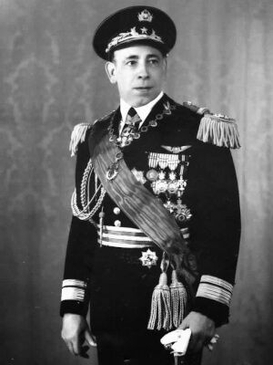 125
Humberto da Silva Delgado was a General of the Portuguese Air Force, diplomat and politician.
125
Humberto da Silva Delgado was a General of the Portuguese Air Force, diplomat and politician.
Mary, mother of Jesus
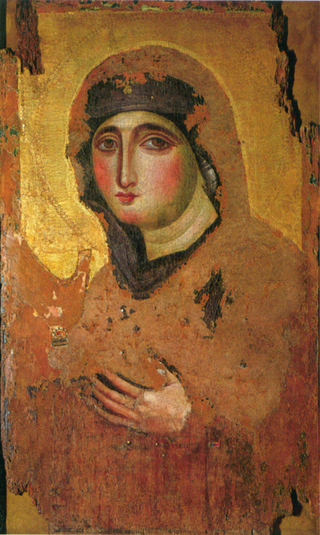 104
Mary was a first-century Jewish woman of Nazareth, the wife of Joseph and the mother of Jesus. She is a central figure of Christianity, venerated under various titles such as virgin or queen, many of...
104
Mary was a first-century Jewish woman of Nazareth, the wife of Joseph and the mother of Jesus. She is a central figure of Christianity, venerated under various titles such as virgin or queen, many of...
Saint Peter
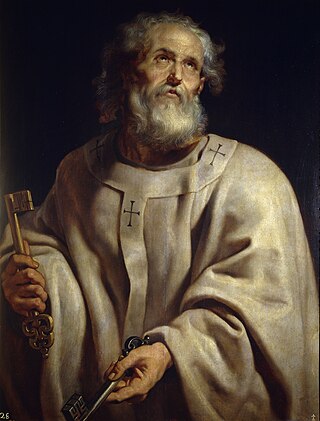 89
Saint Peter, also known as Peter the Apostle, Simon Peter, Simeon, Simon, or Cephas, was one of the Twelve Apostles of Jesus Christ and one of the first leaders of the early Christian Church. He...
89
Saint Peter, also known as Peter the Apostle, Simon Peter, Simeon, Simon, or Cephas, was one of the Twelve Apostles of Jesus Christ and one of the first leaders of the early Christian Church. He...
Vasco da Gama
 87
Vasco da Gama, 1st Count of Vidigueira, was a Portuguese explorer and the first European to reach India by sea.
87
Vasco da Gama, 1st Count of Vidigueira, was a Portuguese explorer and the first European to reach India by sea.
John the Baptist
 84
John the Baptist was a Jewish preacher active in the area of the Jordan River in the early 1st century AD. He is also known as Saint John the Forerunner in Eastern Orthodoxy, John the Immerser in...
84
John the Baptist was a Jewish preacher active in the area of the Jordan River in the early 1st century AD. He is also known as Saint John the Forerunner in Eastern Orthodoxy, John the Immerser in...
Carlos Cândido dos Reis
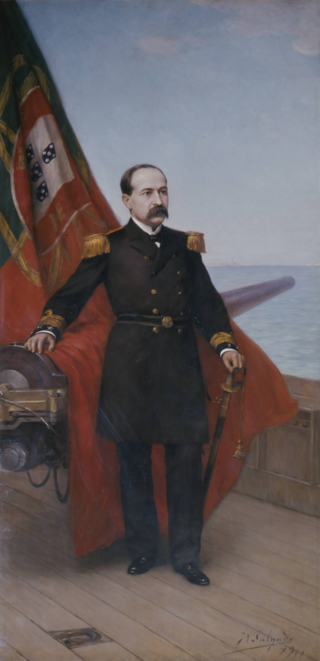 69
Carlos Cândido dos Reis, conhecido na época e historicamente como Almirante Reis foi um militar, herói das revoltas republicanas e um dos seus principais arquitectos, pertencia ao carbonário...
69
Carlos Cândido dos Reis, conhecido na época e historicamente como Almirante Reis foi um militar, herói das revoltas republicanas e um dos seus principais arquitectos, pertencia ao carbonário...
John of God
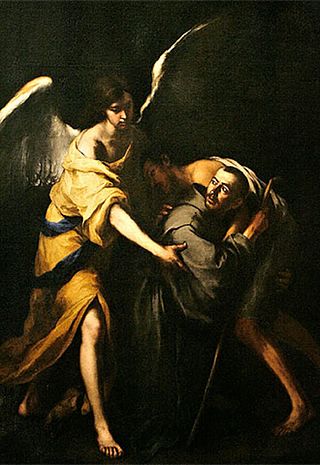 65
John of God, OH was a Portuguese soldier turned health-care worker in Spain, whose followers later formed the Brothers Hospitallers of Saint John of God, a Catholic religious institute dedicated to...
65
John of God, OH was a Portuguese soldier turned health-care worker in Spain, whose followers later formed the Brothers Hospitallers of Saint John of God, a Catholic religious institute dedicated to...
Francisco Sá Carneiro
 64
Francisco Manuel Lumbrales de Sá Carneiro was a Portuguese politician, who was one of the founders and the first leader of the Social Democratic Party. He served as Prime Minister of Portugal for...
64
Francisco Manuel Lumbrales de Sá Carneiro was a Portuguese politician, who was one of the founders and the first leader of the Social Democratic Party. He served as Prime Minister of Portugal for...
Prince Henry the Navigator
 61
Dom Henrique of Portugal, Duke of Viseu, better known as Prince Henry the Navigator, was a central figure in the early days of the Portuguese Empire and in the 15th-century European maritime...
61
Dom Henrique of Portugal, Duke of Viseu, better known as Prince Henry the Navigator, was a central figure in the early days of the Portuguese Empire and in the 15th-century European maritime...
Alexandre Herculano
 59
Alexandre Herculano de Carvalho e Araújo was a Portuguese novelist and historian.
59
Alexandre Herculano de Carvalho e Araújo was a Portuguese novelist and historian.
Miguel Bombarda
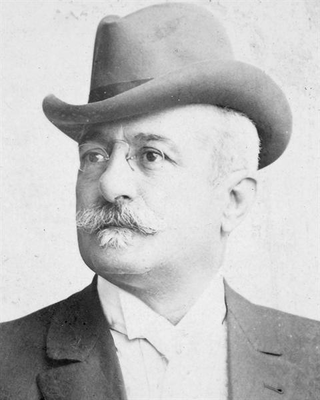 55
Miguel Augusto Bombarda was a Portuguese physician, psychiatrist, and politician. He is perhaps most widely remembered as one of the major conspirators of the 5 October 1910 revolution, although he...
55
Miguel Augusto Bombarda was a Portuguese physician, psychiatrist, and politician. He is perhaps most widely remembered as one of the major conspirators of the 5 October 1910 revolution, although he...
Gago Coutinho
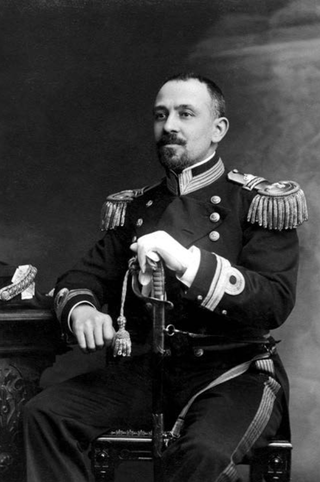 54
Carlos Viegas Gago Coutinho, GCTE, GCC, generally known simply as Gago Coutinho, was a Portuguese geographer, cartographer, naval officer, historian and aviator. An aviation pioneer, Gago Coutinho...
54
Carlos Viegas Gago Coutinho, GCTE, GCC, generally known simply as Gago Coutinho, was a Portuguese geographer, cartographer, naval officer, historian and aviator. An aviation pioneer, Gago Coutinho...
Saint Sebastian
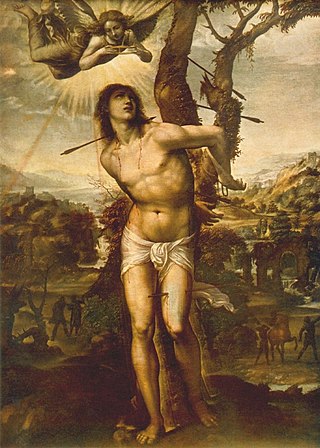 52
Sebastian was an early Christian saint and martyr. According to traditional belief, he was killed during the Diocletianic Persecution of Christians. He was initially tied to a post or tree and shot...
52
Sebastian was an early Christian saint and martyr. According to traditional belief, he was killed during the Diocletianic Persecution of Christians. He was initially tied to a post or tree and shot...
Peter IV of Aragon
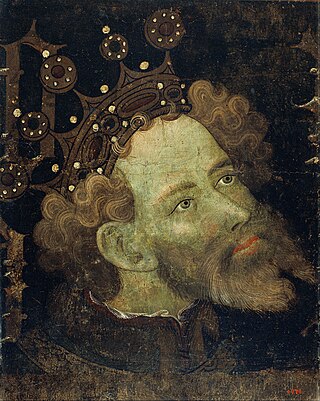 52
Peter IV, called the Ceremonious, was from 1336 until his death the king of Aragon, Sardinia-Corsica, and Valencia, and count of Barcelona. In 1344, he deposed James III of Majorca and made himself...
52
Peter IV, called the Ceremonious, was from 1336 until his death the king of Aragon, Sardinia-Corsica, and Valencia, and count of Barcelona. In 1344, he deposed James III of Majorca and made himself...
Antônio Parreiras
 46
Antônio Diogo da Silva Parreiras was a Brazilian painter, designer and illustrator.
46
Antônio Diogo da Silva Parreiras was a Brazilian painter, designer and illustrator.
Sacadura Cabral
 45
Artur de Sacadura Freire Cabral, GCTE, known simply as Sacadura Cabral, was a Portuguese aviation pioneer. He, together with fellow aviator Gago Coutinho, conducted the first flight across the South...
45
Artur de Sacadura Freire Cabral, GCTE, known simply as Sacadura Cabral, was a Portuguese aviation pioneer. He, together with fellow aviator Gago Coutinho, conducted the first flight across the South...
Sebastião José de Carvalho e Melo, 1st Marquis of Pombal
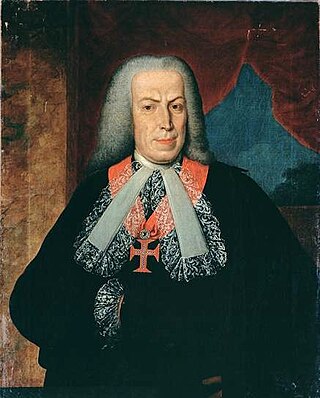 44
D. Sebastião José de Carvalho e Melo, 1st Marquis of Pombal and 1st Count of Oeiras, known as the Marquis of Pombal, was a Portuguese despotic statesman and diplomat who effectively ruled the...
44
D. Sebastião José de Carvalho e Melo, 1st Marquis of Pombal and 1st Count of Oeiras, known as the Marquis of Pombal, was a Portuguese despotic statesman and diplomat who effectively ruled the...
Nuno Álvares Pereira
 41
Dom Nuno Álvares Pereira, OCarm was a very successful Portuguese general who had a decisive role in the 1383–1385 Crisis that assured Portugal's independence from Castile. He later became a mystic...
41
Dom Nuno Álvares Pereira, OCarm was a very successful Portuguese general who had a decisive role in the 1383–1385 Crisis that assured Portugal's independence from Castile. He later became a mystic...
José Afonso
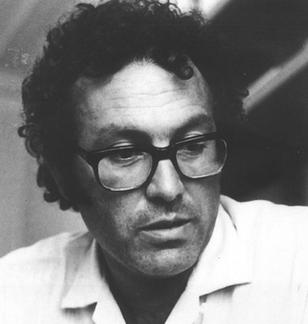 41
José Manuel Cerqueira Afonso dos Santos, known professionally as José Afonso and also popularly known as Zeca Afonso, was a Portuguese singer-songwriter. He is widely regarded as one of the most...
41
José Manuel Cerqueira Afonso dos Santos, known professionally as José Afonso and also popularly known as Zeca Afonso, was a Portuguese singer-songwriter. He is widely regarded as one of the most...
Saint Joseph
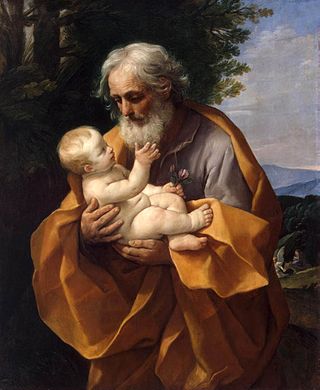 41
Joseph was a 1st-century Jewish man of Nazareth who, according to the canonical Gospels, was married to Mary, the mother of Jesus, and was the legal father of Jesus.
41
Joseph was a 1st-century Jewish man of Nazareth who, according to the canonical Gospels, was married to Mary, the mother of Jesus, and was the legal father of Jesus.
Denis of Portugal
 40
Denis, called the Farmer King and the Poet King, was King of Portugal. The eldest son of Afonso III of Portugal by his second wife, Beatrice of Castile, and grandson of Afonso II of Portugal, Denis...
40
Denis, called the Farmer King and the Poet King, was King of Portugal. The eldest son of Afonso III of Portugal by his second wife, Beatrice of Castile, and grandson of Afonso II of Portugal, Denis...
Alexandre de Serpa Pinto
 39
Alexandre Alberto da Rocha de Serpa Pinto, Viscount of Serpa Pinto was a Portuguese explorer of southern Africa and a colonial administrator.
39
Alexandre Alberto da Rocha de Serpa Pinto, Viscount of Serpa Pinto was a Portuguese explorer of southern Africa and a colonial administrator.
António Egas Moniz
 39
António Caetano de Abreu Freire Egas Moniz, known as Egas Moniz, was a Portuguese neurologist and the developer of cerebral angiography. He is regarded as one of the founders of modern psychosurgery,...
39
António Caetano de Abreu Freire Egas Moniz, known as Egas Moniz, was a Portuguese neurologist and the developer of cerebral angiography. He is regarded as one of the founders of modern psychosurgery,...
Afonso I of Portugal
 38
Afonso I, also called Afonso Henriques, nicknamed the Conqueror and the Founder by the Portuguese, was the first king of Portugal. He achieved the independence of the County of Portugal, establishing...
38
Afonso I, also called Afonso Henriques, nicknamed the Conqueror and the Founder by the Portuguese, was the first king of Portugal. He achieved the independence of the County of Portugal, establishing...
Salgueiro Maia
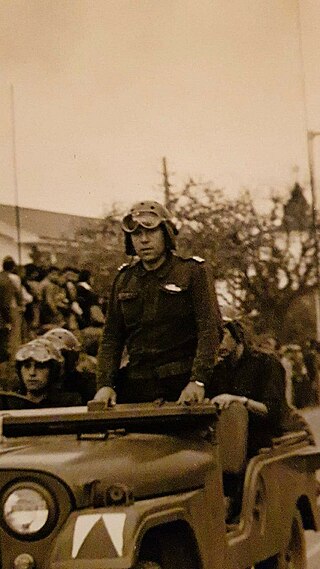 37
Fernando José Salgueiro Maia, GOTE, GCIH, GCL, commonly known as Salgueiro Maia, was a captain in the Portuguese army. He made a significant contribution to the Carnation Revolution, which resulted...
37
Fernando José Salgueiro Maia, GOTE, GCIH, GCL, commonly known as Salgueiro Maia, was a captain in the Portuguese army. He made a significant contribution to the Carnation Revolution, which resulted...
Pedro Álvares Cabral
 37
Pedro Álvares Cabral was a Portuguese nobleman, military commander, navigator and explorer regarded as the European discoverer of Brazil. He was the first recorded human in history to ever be on four...
37
Pedro Álvares Cabral was a Portuguese nobleman, military commander, navigator and explorer regarded as the European discoverer of Brazil. He was the first recorded human in history to ever be on four...
Catarina Eufémia
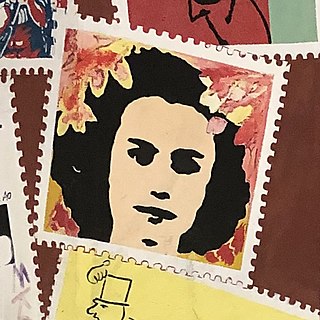 37
Catarina Efigénia Sabino Eufémia was an illiterate harvester from Alentejo, Portugal, who was murdered during a worker's strike by lieutenant Carrajola of the Guarda Nacional Republicana in Monte do...
37
Catarina Efigénia Sabino Eufémia was an illiterate harvester from Alentejo, Portugal, who was murdered during a worker's strike by lieutenant Carrajola of the Guarda Nacional Republicana in Monte do...
Francis of Assisi
 34
Giovanni di Pietro di Bernardone, known as Francis of Assisi, was an Italian mystic, poet and Catholic friar who founded the religious order of the Franciscans. He was inspired to lead a Christian...
34
Giovanni di Pietro di Bernardone, known as Francis of Assisi, was an Italian mystic, poet and Catholic friar who founded the religious order of the Franciscans. He was inspired to lead a Christian...
António José de Almeida
 34
António José de Almeida, GCTE, GCA, GCC, GCSE, was a Portuguese politician who served as the sixth president of Portugal from 1919 to 1923.
34
António José de Almeida, GCTE, GCA, GCC, GCSE, was a Portuguese politician who served as the sixth president of Portugal from 1919 to 1923.
Eça de Queiroz
 34
José Maria de Eça de Queiroz or Queirós is generally considered to have been the greatest Portuguese writer in the realist style. Zola considered him to be far greater than Flaubert. In the London...
34
José Maria de Eça de Queiroz or Queirós is generally considered to have been the greatest Portuguese writer in the realist style. Zola considered him to be far greater than Flaubert. In the London...
Almeida Garrett
 32
João Baptista da Silva Leitão de Almeida Garrett, 1st Viscount of Almeida Garrett was a Portuguese poet, orator, playwright, novelist, journalist, politician, and a peer of the realm. A major...
32
João Baptista da Silva Leitão de Almeida Garrett, 1st Viscount of Almeida Garrett was a Portuguese poet, orator, playwright, novelist, journalist, politician, and a peer of the realm. A major...
António de Oliveira Salazar
 32
António de Oliveira Salazar was a Portuguese statesman, academic, and economist who served as Prime Minister of Portugal from 1932 to 1968. Having come to power under the Ditadura Nacional, he...
32
António de Oliveira Salazar was a Portuguese statesman, academic, and economist who served as Prime Minister of Portugal from 1932 to 1968. Having come to power under the Ditadura Nacional, he...
Rafael Bordalo Pinheiro
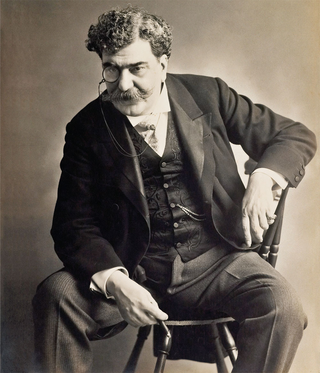 32
Rafael Bordalo Pinheiro was a Portuguese artist known for his illustration, caricatures, sculpture, and ceramics designs. Bordalo Pinheiro created the popular cartoon character Zé Povinho (1875) and...
32
Rafael Bordalo Pinheiro was a Portuguese artist known for his illustration, caricatures, sculpture, and ceramics designs. Bordalo Pinheiro created the popular cartoon character Zé Povinho (1875) and...
Michael (archangel)
 28
Michael, also called Saint Michael the Archangel, Archangel Michael and Saint Michael the Taxiarch is an archangel in Judaism, Christianity, Islam, and the Baha'i faith. The earliest surviving...
28
Michael, also called Saint Michael the Archangel, Archangel Michael and Saint Michael the Taxiarch is an archangel in Judaism, Christianity, Islam, and the Baha'i faith. The earliest surviving...
Manuel I of Portugal
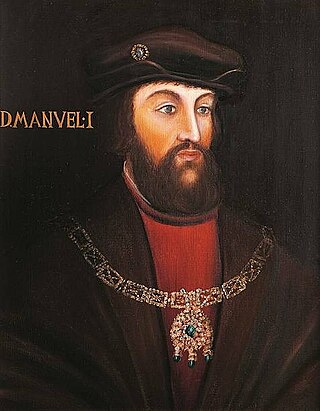 28
Manuel I, known as the Fortunate, was King of Portugal from 1495 to 1521. A member of the House of Aviz, Manuel was Duke of Beja and Viseu prior to succeeding his cousin, John II of Portugal, as...
28
Manuel I, known as the Fortunate, was King of Portugal from 1495 to 1521. A member of the House of Aviz, Manuel was Duke of Beja and Viseu prior to succeeding his cousin, John II of Portugal, as...
António Aleixo
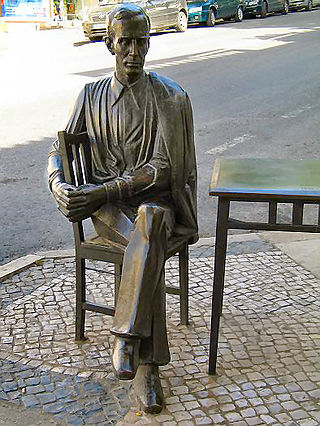 28
António Fernandes Aleixo OB foi um poeta popular português.
28
António Fernandes Aleixo OB foi um poeta popular português.
Camilo Castelo Branco
 28
Camilo Castelo Branco, 1st Viscount of Correia Botelho, was a prolific Portuguese writer of the 19th century, having produced over 260 books. His writing is considered original in that it combines...
28
Camilo Castelo Branco, 1st Viscount of Correia Botelho, was a prolific Portuguese writer of the 19th century, having produced over 260 books. His writing is considered original in that it combines...
Fernando Pessoa
 28
Fernando António Nogueira Pessoa was a Portuguese poet, writer, literary critic, translator, publisher, and philosopher, described as one of the most significant literary figures of the 20th century...
28
Fernando António Nogueira Pessoa was a Portuguese poet, writer, literary critic, translator, publisher, and philosopher, described as one of the most significant literary figures of the 20th century...
Joaquim Augusto Mouzinho de Albuquerque
 26
Joaquim Augusto Mouzinho de Albuquerque was a Portuguese cavalry officer. He captured Gungunhana in Chaimite (1895) and was governor-general of Mozambique. He was a grandson of Luís da Silva Mouzinho...
26
Joaquim Augusto Mouzinho de Albuquerque was a Portuguese cavalry officer. He captured Gungunhana in Chaimite (1895) and was governor-general of Mozambique. He was a grandson of Luís da Silva Mouzinho...
Gil Vicente
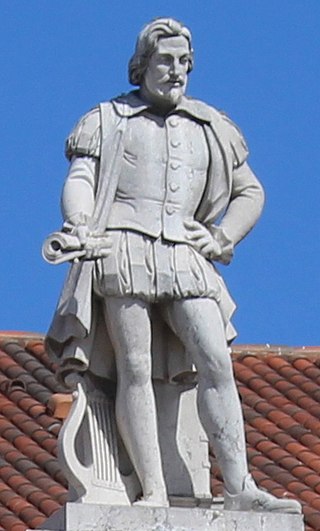 26
Gil Vicente, called the Trobadour, was a Portuguese playwright and poet who acted in and directed his own plays. Considered the chief dramatist of Portugal he is sometimes called the "Portuguese...
26
Gil Vicente, called the Trobadour, was a Portuguese playwright and poet who acted in and directed his own plays. Considered the chief dramatist of Portugal he is sometimes called the "Portuguese...
Our Lady of Fátima
 26
Our Lady of Fátima is a Catholic title of Mary, mother of Jesus, based on the Marian apparitions reported in 1917 by three shepherd children at the Cova da Iria in Fátima, Portugal. The three...
26
Our Lady of Fátima is a Catholic title of Mary, mother of Jesus, based on the Marian apparitions reported in 1917 by three shepherd children at the Cova da Iria in Fátima, Portugal. The three...
Florbela Espanca
 26
Florbela Espanca was a Portuguese poet. She is known for her passionate and feminist poetry. Fernando Pessoa later said she was his "twin soul".
26
Florbela Espanca was a Portuguese poet. She is known for her passionate and feminist poetry. Fernando Pessoa later said she was his "twin soul".
Manuel de Arriaga
 26
Manuel José de Arriaga Brum da Silveira e Peyrelongue was a Portuguese lawyer, the first attorney-general and the first elected president of the First Portuguese Republic, following the deposition of...
26
Manuel José de Arriaga Brum da Silveira e Peyrelongue was a Portuguese lawyer, the first attorney-general and the first elected president of the First Portuguese Republic, following the deposition of...
António Sérgio
 24
António Sérgio de Sousa was an influential educationist, philosopher, journalist, sociologist and essayist from Portugal.
24
António Sérgio de Sousa was an influential educationist, philosopher, journalist, sociologist and essayist from Portugal.
António Machado Santos
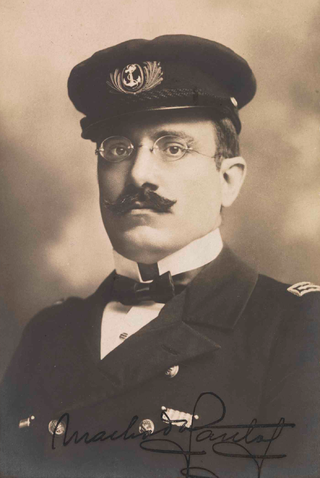 24
António Maria de Azevedo Machado Santos was a Portuguese Navy officer, remembered as the "Hero of the Rotunda" for his role in the 5 October 1910 revolution.
24
António Maria de Azevedo Machado Santos was a Portuguese Navy officer, remembered as the "Hero of the Rotunda" for his role in the 5 October 1910 revolution.
Saint Lucy
 24
Lucia of Syracuse (283–304), also called Saint Lucia was a Roman Christian martyr who died during the Diocletianic Persecution. She is venerated as a saint in Catholic, Anglican, Lutheran, and...
24
Lucia of Syracuse (283–304), also called Saint Lucia was a Roman Christian martyr who died during the Diocletianic Persecution. She is venerated as a saint in Catholic, Anglican, Lutheran, and...
José Elias Garcia
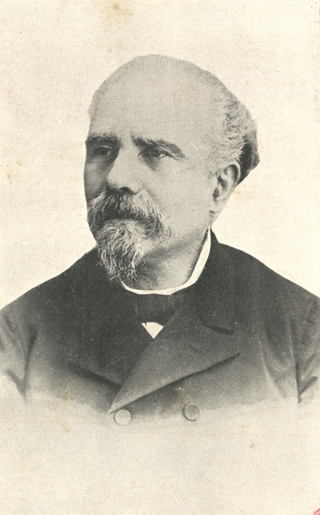 23
José Elias Garcia fue profesor de la Escuela del Ejército, periodista, político republicano y coronel de ingeniería del Ejército Portugués.
23
José Elias Garcia fue profesor de la Escuela del Ejército, periodista, político republicano y coronel de ingeniería del Ejército Portugués.
Dominic Savio
 23
Dominic Savio was an Italian student of John Bosco. He was studying to be a priest when he became ill and died at the age of 14, possibly from pleurisy. He was noted for his piety and devotion to the...
23
Dominic Savio was an Italian student of John Bosco. He was studying to be a priest when he became ill and died at the age of 14, possibly from pleurisy. He was noted for his piety and devotion to the...
Aquilino Ribeiro
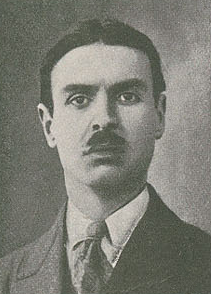 23
Aquilino Gomes Ribeiro, ComL, was a Portuguese writer and diplomat. He is generally considered to be one of the great Portuguese novelists of the 20th century. In 1960, he was nominated for the Nobel...
23
Aquilino Gomes Ribeiro, ComL, was a Portuguese writer and diplomat. He is generally considered to be one of the great Portuguese novelists of the 20th century. In 1960, he was nominated for the Nobel...
Benedict of Nursia
 23
Benedict of Nursia, often known as Saint Benedict, was an Italian Christian monk, writer, and theologian. He is venerated in the Catholic Church, the Eastern Orthodox Church, the Oriental Orthodox...
23
Benedict of Nursia, often known as Saint Benedict, was an Italian Christian monk, writer, and theologian. He is venerated in the Catholic Church, the Eastern Orthodox Church, the Oriental Orthodox...
Alves Redol
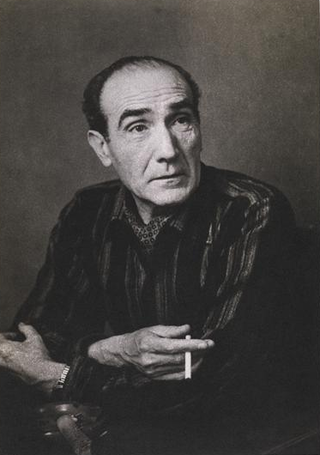 22
António Alves Redol was an influential Portuguese neorealist writer.
22
António Alves Redol was an influential Portuguese neorealist writer.
Afonso de Albuquerque
 21
Afonso de Albuquerque, 1st Duke of Goa, was a Portuguese general, admiral, and statesman. He served as viceroy of Portuguese India from 1509 to 1515, during which he expanded Portuguese influence...
21
Afonso de Albuquerque, 1st Duke of Goa, was a Portuguese general, admiral, and statesman. He served as viceroy of Portuguese India from 1509 to 1515, during which he expanded Portuguese influence...
James the Great
 21
James the Great was one of the Twelve Apostles of Jesus. According to the New Testament, he was the second of the apostles to die, and the first to be martyred. Saint James is the patron saint of...
21
James the Great was one of the Twelve Apostles of Jesus. According to the New Testament, he was the second of the apostles to die, and the first to be martyred. Saint James is the patron saint of...
Miguel Torga
 21
Miguel Torga, pseudonym of Adolfo Correia da Rocha, is considered one of the greatest Portuguese writers of the 20th century. He wrote poetry, short stories, a genre in which he is accounted a...
21
Miguel Torga, pseudonym of Adolfo Correia da Rocha, is considered one of the greatest Portuguese writers of the 20th century. He wrote poetry, short stories, a genre in which he is accounted a...
Ferreira de Castro
 21
José Maria Ferreira de Castro was a Portuguese writer and journalist. Ferreira de Castro had a long career in journalism, and considered his fiction writing to be an extension of his documentary...
21
José Maria Ferreira de Castro was a Portuguese writer and journalist. Ferreira de Castro had a long career in journalism, and considered his fiction writing to be an extension of his documentary...
José Norton de Matos
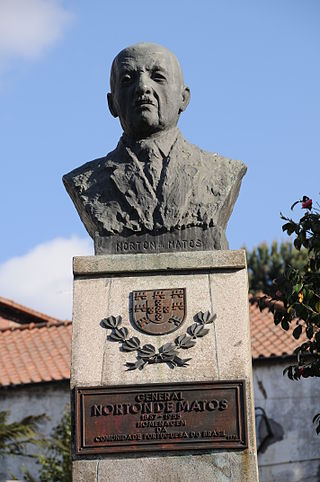 20
José Maria Mendes Ribeiro Norton de Matos, GCTE, GCL was a Portuguese general and politician.
20
José Maria Mendes Ribeiro Norton de Matos, GCTE, GCL was a Portuguese general and politician.
Duarte Pacheco
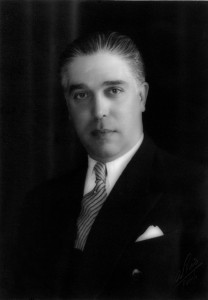 19
Duarte José Pacheco GCC • GCSE foi um engenheiro e estadista português.
19
Duarte José Pacheco GCC • GCSE foi um engenheiro e estadista português.
Pope John Paul II
 19
Pope John Paul II was head of the Catholic Church and sovereign of the Vatican City State from 1978 until his death in 2005.
19
Pope John Paul II was head of the Catholic Church and sovereign of the Vatican City State from 1978 until his death in 2005.
Teófilo Braga
 19
Joaquim Teófilo Fernandes Braga was a Portuguese writer, playwright, politician and the leader of the Republican Provisional Government after the overthrow of King Manuel II, as well as the second...
19
Joaquim Teófilo Fernandes Braga was a Portuguese writer, playwright, politician and the leader of the Republican Provisional Government after the overthrow of King Manuel II, as well as the second...
José Maria Latino Coelho
 19
José Maria Latino Coelho, mais conhecido por Latino Coelho, militar, escritor, jornalista, filólogo, historiador, ensaísta e político português, formado em Engenharia Militar. Seguiu a carreira das...
19
José Maria Latino Coelho, mais conhecido por Latino Coelho, militar, escritor, jornalista, filólogo, historiador, ensaísta e político português, formado em Engenharia Militar. Seguiu a carreira das...
Bento de Jesus Caraça
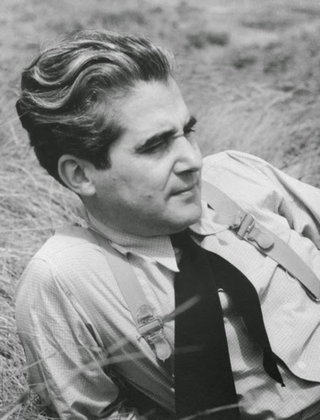 19
Bento de Jesus Caraça, GCSE, GOL was an influential Portuguese mathematician, economist and statistician. Caraça was also a member of the Portuguese Communist Party, and participated in the formation...
19
Bento de Jesus Caraça, GCSE, GOL was an influential Portuguese mathematician, economist and statistician. Caraça was also a member of the Portuguese Communist Party, and participated in the formation...
Bartolomeu Dias
 18
Bartolomeu Dias was a Portuguese mariner and explorer. In 1488, he became the first European navigator to round the southern tip of Africa and to demonstrate that the most effective southward route...
18
Bartolomeu Dias was a Portuguese mariner and explorer. In 1488, he became the first European navigator to round the southern tip of Africa and to demonstrate that the most effective southward route...
Saint Amaro
 18
According to Catholic tradition, Saint Amaro or Amarus the Pilgrim was an abbot and sailor who it was claimed sailed across the Atlantic Ocean to an earthly paradise. There are two historical figures...
18
According to Catholic tradition, Saint Amaro or Amarus the Pilgrim was an abbot and sailor who it was claimed sailed across the Atlantic Ocean to an earthly paradise. There are two historical figures...
Gil Eanes
 17
Gil Eanes was a 15th-century Portuguese navigator and explorer.
17
Gil Eanes was a 15th-century Portuguese navigator and explorer.
Antero de Quental
 17
Antero Tarquínio de Quental was a Portuguese poet, philosopher, and writer. De Quental is regarded as one of the greatest poets of his generation and is recognized as one of the most influential...
17
Antero Tarquínio de Quental was a Portuguese poet, philosopher, and writer. De Quental is regarded as one of the greatest poets of his generation and is recognized as one of the most influential...
Ferdinand Magellan
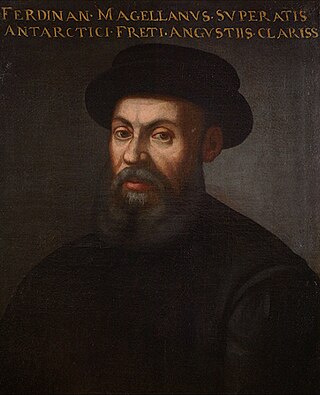 17
Ferdinand Magellan was a Portuguese explorer best known for having planned and led the 1519 Spanish expedition to the East Indies across the Pacific Ocean to open a maritime trade route, during which...
17
Ferdinand Magellan was a Portuguese explorer best known for having planned and led the 1519 Spanish expedition to the East Indies across the Pacific Ocean to open a maritime trade route, during which...
Saint Lawrence
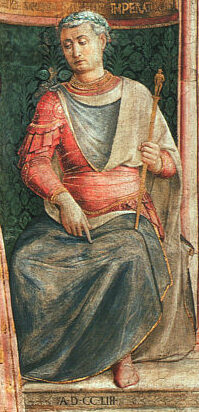 17
Saint Lawrence or Laurence was one of the seven deacons of the city of Rome under Pope Sixtus II who were martyred in the persecution of the Christians that the Roman Emperor Valerian ordered in 258.
17
Saint Lawrence or Laurence was one of the seven deacons of the city of Rome under Pope Sixtus II who were martyred in the persecution of the Christians that the Roman Emperor Valerian ordered in 258.
Catherine of Alexandria
 17
Catherine of Alexandria, also spelled Katherine is, according to tradition, a Christian saint and virgin, who was martyred in the early fourth century at the hands of the emperor Maxentius. According...
17
Catherine of Alexandria, also spelled Katherine is, according to tradition, a Christian saint and virgin, who was martyred in the early fourth century at the hands of the emperor Maxentius. According...
José Régio
 17
José Maria dos Reis Pereira, better known by the pen name José Régio, was a Portuguese writer who spent most of his life in Portalegre. He was the brother of Júlio Maria dos Reis Pereira, a painter...
17
José Maria dos Reis Pereira, better known by the pen name José Régio, was a Portuguese writer who spent most of his life in Portalegre. He was the brother of Júlio Maria dos Reis Pereira, a painter...
Calouste Gulbenkian
 16
Calouste Sarkis Gulbenkian, nicknamed "Mr Five Per Cent", was a British-Armenian businessman and philanthropist. He played a major role in making the petroleum reserves of the Middle East available...
16
Calouste Sarkis Gulbenkian, nicknamed "Mr Five Per Cent", was a British-Armenian businessman and philanthropist. He played a major role in making the petroleum reserves of the Middle East available...
Martin of Tours
 16
Martin of Tours, also known as Martin the Merciful, was the third bishop of Tours. He has become one of the most familiar and recognizable Christian saints in France, heralded as the patron saint of...
16
Martin of Tours, also known as Martin the Merciful, was the third bishop of Tours. He has become one of the most familiar and recognizable Christian saints in France, heralded as the patron saint of...
Vasco Santana
 16
Vasco Santana was a Portuguese actor, one of the most renowned of the classical era of Portuguese cinema.
16
Vasco Santana was a Portuguese actor, one of the most renowned of the classical era of Portuguese cinema.
Vincent of Saragossa
 16
Vincent of Saragossa, the Protomartyr of Spain, was a deacon of the Church of Saragossa. He is the patron saint of Lisbon and Valencia. His feast day is 22 January in the Catholic Church and Anglican...
16
Vincent of Saragossa, the Protomartyr of Spain, was a deacon of the Church of Saragossa. He is the patron saint of Lisbon and Valencia. His feast day is 22 January in the Catholic Church and Anglican...
Guerra Junqueiro
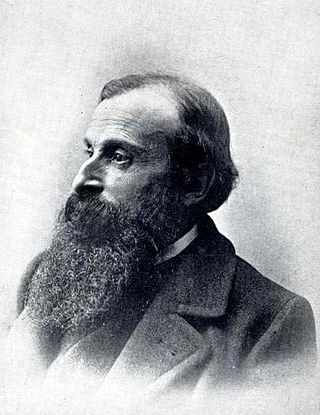 16
Abílio Manuel Guerra Junqueiro was a Portuguese top civil servant, member of the Portuguese House of Representatives, journalist, author, and poet. His work helped inspire the creation of the...
16
Abílio Manuel Guerra Junqueiro was a Portuguese top civil servant, member of the Portuguese House of Representatives, journalist, author, and poet. His work helped inspire the creation of the...
Manuel Maria Barbosa du Bocage
 16
Manuel Maria Barbosa l'Hedois du Bocage, most often referred to simply as Bocage, was a Portuguese Neoclassic poet, writing at the beginning of his career under the pen name Elmano Sadino.
16
Manuel Maria Barbosa l'Hedois du Bocage, most often referred to simply as Bocage, was a Portuguese Neoclassic poet, writing at the beginning of his career under the pen name Elmano Sadino.
Saint Barbara
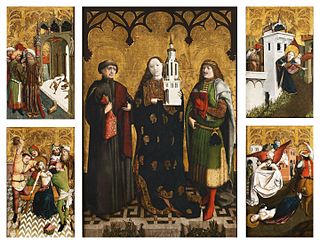 16
Saint Barbara, known in the Eastern Orthodox Church as the Great Martyr Barbara, was an early Christian Greek saint and martyr.
16
Saint Barbara, known in the Eastern Orthodox Church as the Great Martyr Barbara, was an early Christian Greek saint and martyr.
Saint Blaise
 16
Blaise of Sebaste was a physician and bishop of Sebastea in historical Lesser Armenia who is venerated as a Christian saint and martyr. He is counted as one of the Fourteen Holy Helpers.
16
Blaise of Sebaste was a physician and bishop of Sebastea in historical Lesser Armenia who is venerated as a Christian saint and martyr. He is counted as one of the Fourteen Holy Helpers.
Natália Correia
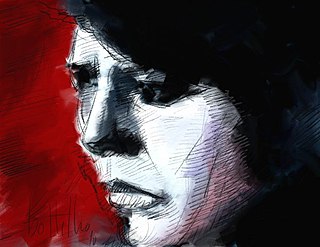 15
Natália de Oliveira Correia, GOSE, GOL was a Portuguese intellectual, poet and social activist, as well as the author of the official lyrics of the "Hino dos Açores", the regional anthem of the...
15
Natália de Oliveira Correia, GOSE, GOL was a Portuguese intellectual, poet and social activist, as well as the author of the official lyrics of the "Hino dos Açores", the regional anthem of the...
Adelino Amaro da Costa
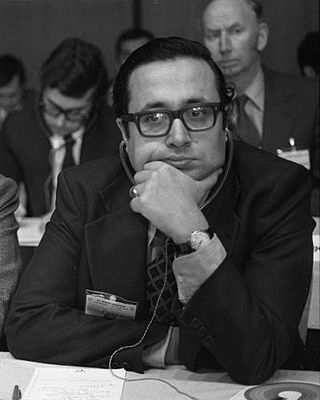 15
Adelino Manuel Lopes Amaro da Costa, GCIH was a Portuguese politician.
15
Adelino Manuel Lopes Amaro da Costa, GCIH was a Portuguese politician.
Manuel de Brito Camacho
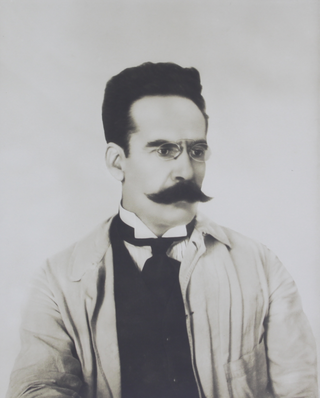 15
Manuel de Brito Camacho a Portuguese military officer, writer, publicist and politician, who among other positions, was Minister of Public Works, Commerce and Industry (1910–1911) and Republican High...
15
Manuel de Brito Camacho a Portuguese military officer, writer, publicist and politician, who among other positions, was Minister of Public Works, Commerce and Industry (1910–1911) and Republican High...
Bento Gonçalves da Silva
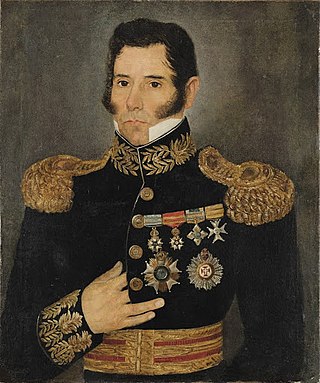 15
Bento Gonçalves da Silva was a Brazilian army officer, politician and rebel leader of the Riograndense Republic. He was the first President of the Riograndense Republic and, by all accounts, one of...
15
Bento Gonçalves da Silva was a Brazilian army officer, politician and rebel leader of the Riograndense Republic. He was the first President of the Riograndense Republic and, by all accounts, one of...
José Carlos Ary dos Santos
 15
José Carlos Pereira Ary dos Santos, better known as José Carlos Ary dos Santos, or simply Ary dos Santos was a Portuguese poet, lyricist, and poetry reader. He published his first book, A liturgia do...
15
José Carlos Pereira Ary dos Santos, better known as José Carlos Ary dos Santos, or simply Ary dos Santos was a Portuguese poet, lyricist, and poetry reader. He published his first book, A liturgia do...
Pedro Nunes
 14
Pedro Nunes was a Portuguese mathematician, cosmographer, and professor, probably from a New Christian family.
14
Pedro Nunes was a Portuguese mathematician, cosmographer, and professor, probably from a New Christian family.
João Gonçalves Zarco
 14
João Gonçalves Zarco was a Portuguese explorer who established settlements and recognition of the Madeira Islands, and was appointed first captain of Funchal by Henry the Navigator.
14
João Gonçalves Zarco was a Portuguese explorer who established settlements and recognition of the Madeira Islands, and was appointed first captain of Funchal by Henry the Navigator.
John II of Portugal
 13
John II, called the Perfect Prince, was King of Portugal from 1481 until his death in 1495, and also for a brief time in 1477. He is known for re-establishing the power of the Portuguese monarchy,...
13
John II, called the Perfect Prince, was King of Portugal from 1481 until his death in 1495, and also for a brief time in 1477. He is known for re-establishing the power of the Portuguese monarchy,...
António Vieira
 13
António Vieira was a Portuguese Jesuit priest, diplomat, orator, preacher, philosopher, writer, and member of the Royal Council to the King of Portugal.
13
António Vieira was a Portuguese Jesuit priest, diplomat, orator, preacher, philosopher, writer, and member of the Royal Council to the King of Portugal.
Amália Rodrigues
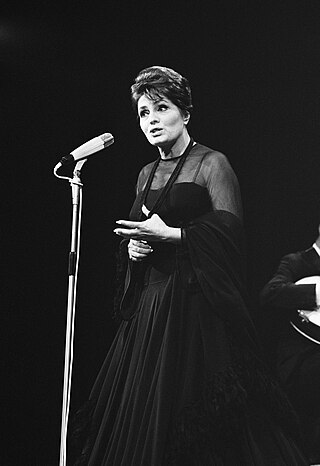 13
Amália da Piedade Rebordão Rodrigues GCSE, GCIH, better known as Amália Rodrigues or popularly as Amália, was a Portuguese fadista.
13
Amália da Piedade Rebordão Rodrigues GCSE, GCIH, better known as Amália Rodrigues or popularly as Amália, was a Portuguese fadista.
Soeiro Pereira Gomes
 13
Joaquim Soeiro Pereira Gomes was a Portuguese writer of realist influence and became one of the major names of Portuguese literature of the 20th century. Pereira Gomes is, along with Alves Redol, the...
13
Joaquim Soeiro Pereira Gomes was a Portuguese writer of realist influence and became one of the major names of Portuguese literature of the 20th century. Pereira Gomes is, along with Alves Redol, the...
Júlio Dinis
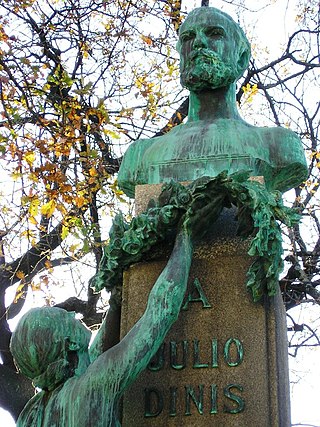 13
Júlio Dinis, pseudonym of Joaquim Guilherme Gomes Coelho was a Portuguese medical doctor and poet, playwright and novelist. He was the first great novelist of modern Portuguese middle-class society....
13
Júlio Dinis, pseudonym of Joaquim Guilherme Gomes Coelho was a Portuguese medical doctor and poet, playwright and novelist. He was the first great novelist of modern Portuguese middle-class society....
Ramalho Ortigão
 13
José Duarte Ramalho Ortigão was a Portuguese writer of the late 19th century and early 20th century.
13
José Duarte Ramalho Ortigão was a Portuguese writer of the late 19th century and early 20th century.
Manuel da Fonseca
 13
Manuel Lopes Fonseca, better known as Manuel da Fonseca, was a Portuguese writer.
13
Manuel Lopes Fonseca, better known as Manuel da Fonseca, was a Portuguese writer.
Teófilo da Trindade
Maria Helena Vieira da Silva
 12
Maria Helena Vieira da Silva was a Portuguese abstract painter. She was considered a leading member of the European abstract expressionism movement known as Art Informel. Her works feature complex...
12
Maria Helena Vieira da Silva was a Portuguese abstract painter. She was considered a leading member of the European abstract expressionism movement known as Art Informel. Her works feature complex...
Fialho de Almeida
 12
José Valentim Fialho de Almeida, better known as Fialho de Almeida, was a Portuguese writer, journalist, and translator associated with Symbolism and the Decadent movement. In his political writings,...
12
José Valentim Fialho de Almeida, better known as Fialho de Almeida, was a Portuguese writer, journalist, and translator associated with Symbolism and the Decadent movement. In his political writings,...
Sidónio Pais
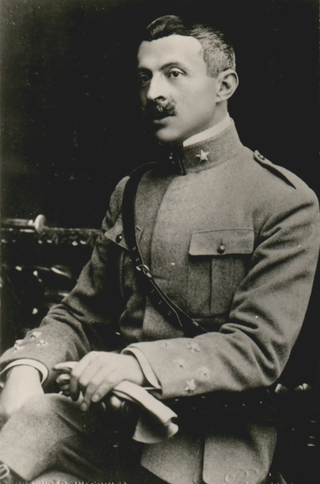 12
Sidónio Bernardino Cardoso da Silva Pais was a Portuguese politician, military officer, and diplomat, who served as the fourth president of the First Portuguese Republic in 1918. One of the most...
12
Sidónio Bernardino Cardoso da Silva Pais was a Portuguese politician, military officer, and diplomat, who served as the fourth president of the First Portuguese Republic in 1918. One of the most...
Pedro V of Portugal
 12
Peter V, nicknamed "the Hopeful", was King of Portugal from 1853 to 1861.
12
Peter V, nicknamed "the Hopeful", was King of Portugal from 1853 to 1861.
Vitorino Nemésio
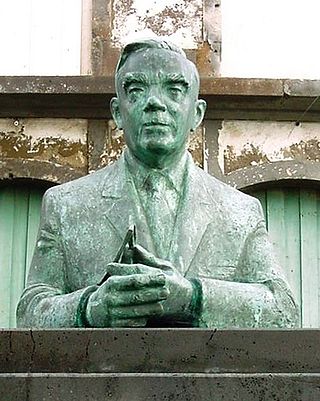 12
Vitorino Nemésio Mendes Pinheiro da Silva was a Portuguese poet, author and intellectual from Terceira, Azores, best known for his novel Mau Tempo No Canal, as well as being a professor in the...
12
Vitorino Nemésio Mendes Pinheiro da Silva was a Portuguese poet, author and intellectual from Terceira, Azores, best known for his novel Mau Tempo No Canal, as well as being a professor in the...
Salvador of Horta
 12
Salvador of Horta was a Spanish Franciscan lay brother from the region of Catalonia in Spain, who was celebrated as a miracle worker during his lifetime. He is honored as a saint by the Catholic...
12
Salvador of Horta was a Spanish Franciscan lay brother from the region of Catalonia in Spain, who was celebrated as a miracle worker during his lifetime. He is honored as a saint by the Catholic...
Afonso Costa
 12
Afonso Augusto da Costa, GCTE, GCL was a Portuguese lawyer, professor and republican politician.
12
Afonso Augusto da Costa, GCTE, GCL was a Portuguese lawyer, professor and republican politician.
Saint Roch
 12
Roch, also called Rock in English, was a Majorcan Catholic confessor whose death is commemorated on 16 August and 9 September in Italy; he was especially invoked against the plague. He has the...
12
Roch, also called Rock in English, was a Majorcan Catholic confessor whose death is commemorated on 16 August and 9 September in Italy; he was especially invoked against the plague. He has the...
Almada Negreiros
 12
José Sobral de Almada Negreiros was a Portuguese artist. He was born in the colony of Portuguese São Tomé and Príncipe, the son of a Portuguese father, António Lobo de Almada Negreiros, and a...
12
José Sobral de Almada Negreiros was a Portuguese artist. He was born in the colony of Portuguese São Tomé and Príncipe, the son of a Portuguese father, António Lobo de Almada Negreiros, and a...
Andrew the Apostle
 12
Andrew the Apostle, also called Saint Andrew, was an apostle of Jesus. According to the New Testament, he was a fisherman and one of the Twelve Apostles chosen by Jesus. The title First-Called stems...
12
Andrew the Apostle, also called Saint Andrew, was an apostle of Jesus. According to the New Testament, he was a fisherman and one of the Twelve Apostles chosen by Jesus. The title First-Called stems...
Adriano Correia de Oliveira
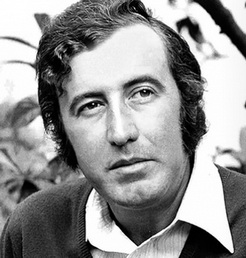 12
Adriano Maria Correia Gomes de Oliveira, GCIH, ComL, or just Adriano was a Portuguese musician, born to a conservative Roman Catholic family in Porto. His family moved to Avintes after his birth. He...
12
Adriano Maria Correia Gomes de Oliveira, GCIH, ComL, or just Adriano was a Portuguese musician, born to a conservative Roman Catholic family in Porto. His family moved to Avintes after his birth. He...
Heliodoro Salgado
 11
Heliodoro Salgado foi um intelectual, jornalista e publicista republicano e livre-pensador, que se notabilizou como militante anticlerical e propagandista dos ideais republicanos. Foi descrito como...
11
Heliodoro Salgado foi um intelectual, jornalista e publicista republicano e livre-pensador, que se notabilizou como militante anticlerical e propagandista dos ideais republicanos. Foi descrito como...
Roque González y de Santa Cruz
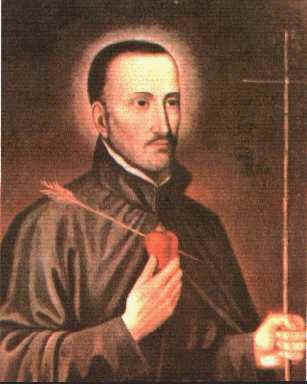 11
Roque González de Santa Cruz, SJ was a Jesuit priest who was the first missionary among the Guarani people in Paraguay. He is honored as a martyr and saint by the Catholic Church.
11
Roque González de Santa Cruz, SJ was a Jesuit priest who was the first missionary among the Guarani people in Paraguay. He is honored as a martyr and saint by the Catholic Church.
Mark the Evangelist
 11
Mark the Evangelist also known as John Mark or Saint Mark, is the person who is traditionally ascribed to be the author of the Gospel of Mark. Modern Bible scholars have concluded that the Gospel of...
11
Mark the Evangelist also known as John Mark or Saint Mark, is the person who is traditionally ascribed to be the author of the Gospel of Mark. Modern Bible scholars have concluded that the Gospel of...
Jesus
 11
Jesus, also referred to as Jesus Christ, Jesus of Nazareth, and many other names and titles, was a first-century Jewish preacher and religious leader. He is the central figure of Christianity, the...
11
Jesus, also referred to as Jesus Christ, Jesus of Nazareth, and many other names and titles, was a first-century Jewish preacher and religious leader. He is the central figure of Christianity, the...
José Saramago
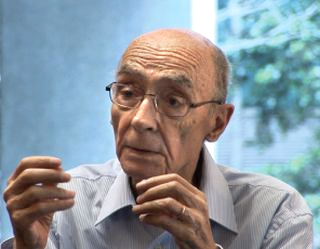 11
José de Sousa Saramago was a Portuguese writer. He was the recipient of the 1998 Nobel Prize in Literature for his "parables sustained by imagination, compassion and irony [with which he] continually...
11
José de Sousa Saramago was a Portuguese writer. He was the recipient of the 1998 Nobel Prize in Literature for his "parables sustained by imagination, compassion and irony [with which he] continually...
Fernão Lopes
 11
Fernão Lopes was a Portuguese chronicler appointed by King Edward of Portugal. Fernão Lopes wrote the history of Portugal, but only a part of his work remained.
11
Fernão Lopes was a Portuguese chronicler appointed by King Edward of Portugal. Fernão Lopes wrote the history of Portugal, but only a part of his work remained.
Diogo Cão
 11
Diogo Cão, also known as Diogo Cam, was a Portuguese mariner and one of the most notable explorers of the fifteenth century. He made two voyages along the west coast of Africa in the 1480s, exploring...
11
Diogo Cão, also known as Diogo Cam, was a Portuguese mariner and one of the most notable explorers of the fifteenth century. He made two voyages along the west coast of Africa in the 1480s, exploring...
Maria Lamas
 11
Maria Lamas was a Portuguese writer, translator, journalist, and feminist political activist.
11
Maria Lamas was a Portuguese writer, translator, journalist, and feminist political activist.
João de Castro
 11
D. João de Castro was a Portuguese nobleman, scientist, writer and colonial administrator, being the fourth Portuguese Viceroy of India from 1545 to 1548. He was called Strong Castro by the poet Luís...
11
D. João de Castro was a Portuguese nobleman, scientist, writer and colonial administrator, being the fourth Portuguese Viceroy of India from 1545 to 1548. He was called Strong Castro by the poet Luís...
Paul the Apostle
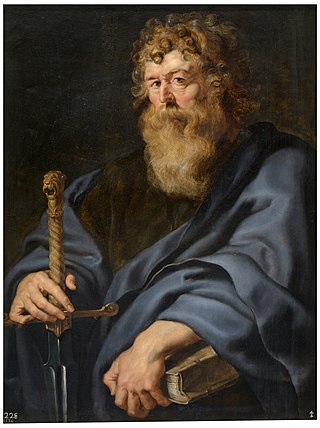 11
Paul, commonly known as Paul the Apostle and Saint Paul, was a Christian apostle who spread the teachings of Jesus in the first-century world. For his contributions towards the New Testament, he is...
11
Paul, commonly known as Paul the Apostle and Saint Paul, was a Christian apostle who spread the teachings of Jesus in the first-century world. For his contributions towards the New Testament, he is...
John I of Portugal
 10
John I, also called John of Aviz, was King of Portugal from 1385 until his death in 1433. He is recognized chiefly for his role in Portugal's victory in a succession war with Castile, preserving his...
10
John I, also called John of Aviz, was King of Portugal from 1385 until his death in 1433. He is recognized chiefly for his role in Portugal's victory in a succession war with Castile, preserving his...
Bernardino Machado
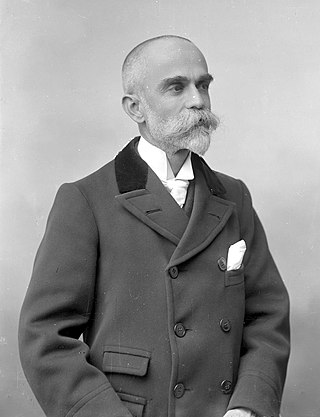 10
Bernardino Luís Machado Guimarães, GCTE, GCL, was a Portuguese political figure, the third and eighth president of Portugal.
10
Bernardino Luís Machado Guimarães, GCTE, GCL, was a Portuguese political figure, the third and eighth president of Portugal.
Carlos I of Portugal
 10
Dom Carlos I, known as the Diplomat, the Martyr, and the Oceanographer, among many other names, was King of Portugal from 1889 until his assassination in 1908. He was the first Portuguese king to die...
10
Dom Carlos I, known as the Diplomat, the Martyr, and the Oceanographer, among many other names, was King of Portugal from 1889 until his assassination in 1908. He was the first Portuguese king to die...
Fernando Namora
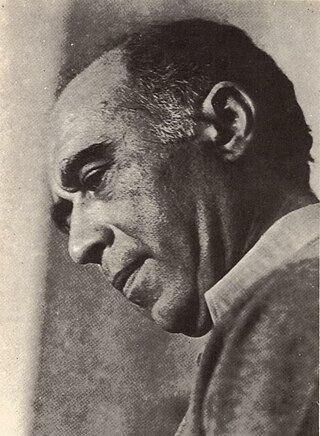 10
Fernando Namora, with the full name Fernando Gonçalves Namora was a Portuguese writer and medical doctor. Namora was born in Condeixa-a-Nova, Coimbra District and died in Lisbon, Portugal.
10
Fernando Namora, with the full name Fernando Gonçalves Namora was a Portuguese writer and medical doctor. Namora was born in Condeixa-a-Nova, Coimbra District and died in Lisbon, Portugal.
Afonso III of Portugal
 10
Afonso III, or Affonso, Alfonso or Alphonso (Portuguese-Galician) or Alphonsus (Latin), the Boulonnais, King of Portugal was the first to use the title King of Portugal and the Algarve, from 1249. He...
10
Afonso III, or Affonso, Alfonso or Alphonso (Portuguese-Galician) or Alphonsus (Latin), the Boulonnais, King of Portugal was the first to use the title King of Portugal and the Algarve, from 1249. He...
Eduardo António Prieto Valadim
 10
Eduardo António Prieto Valadim, mais conhecido por Tenente Valadim, foi um herói das campanhas de conquista e pacificação que Portugal desenvolveu nas suas colónias em finais do século XIX. No...
10
Eduardo António Prieto Valadim, mais conhecido por Tenente Valadim, foi um herói das campanhas de conquista e pacificação que Portugal desenvolveu nas suas colónias em finais do século XIX. No...
Manuel Gomes da Costa
 10
Manuel de Oliveira Gomes da Costa, commonly known as Manuel Gomes da Costa or just Gomes da Costa, was a Portuguese army officer and politician, the tenth president of Portugal and the second of the...
10
Manuel de Oliveira Gomes da Costa, commonly known as Manuel Gomes da Costa or just Gomes da Costa, was a Portuguese army officer and politician, the tenth president of Portugal and the second of the...
Gonçalo Velho Cabral
 9
Gonçalo Velho Cabral was a Portuguese monk and Commander in the Order of Christ, explorer and hereditary landowner responsible for administering Crown lands on the same islands, during the Portuguese...
9
Gonçalo Velho Cabral was a Portuguese monk and Commander in the Order of Christ, explorer and hereditary landowner responsible for administering Crown lands on the same islands, during the Portuguese...
Óscar Carmona
 9
António Óscar de Fragoso Carmona was a Portuguese Army officer and politician who served as prime minister of Portugal from 1926 to 1928 and as the 11th president of Portugal from 1926 until his...
9
António Óscar de Fragoso Carmona was a Portuguese Army officer and politician who served as prime minister of Portugal from 1926 to 1928 and as the 11th president of Portugal from 1926 until his...
Carvalho Araújo
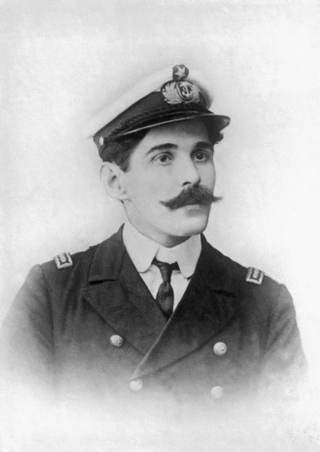 9
José Botelho de Carvalho Araújo was a Portuguese Navy officer and colonial administrator who died in action in World War I battling German U-boat SM U-139, commanded by submarine ace Lothar von...
9
José Botelho de Carvalho Araújo was a Portuguese Navy officer and colonial administrator who died in action in World War I battling German U-boat SM U-139, commanded by submarine ace Lothar von...
Américo Monteiro de Aguiar
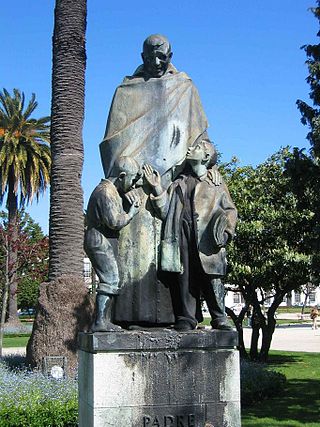 9
Américo Monteiro de Aguiar, mais conhecido por Padre Américo, foi um importante benfeitor português que dedicou a sua vida aos mais carenciados, principalmente jovens, que se traduziu em inúmeras...
9
Américo Monteiro de Aguiar, mais conhecido por Padre Américo, foi um importante benfeitor português que dedicou a sua vida aos mais carenciados, principalmente jovens, que se traduziu em inúmeras...
Ribeirinho
 9
Ribeirinho, stage name of Francisco Carlos Lopes Ribeiro was a Portuguese actor and director.
9
Ribeirinho, stage name of Francisco Carlos Lopes Ribeiro was a Portuguese actor and director.
José Francisco Trindade Coelho
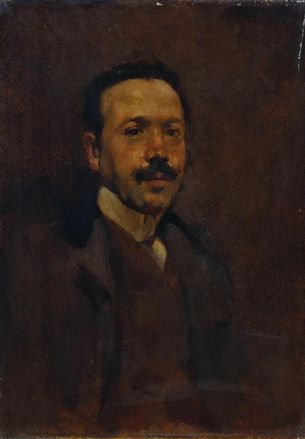 9
José Francisco Trindade Coelho foi um escritor, magistrado e político português.
9
José Francisco Trindade Coelho foi um escritor, magistrado e político português.
Cesário Verde
Anthony the Great
 9
Anthony the Great was a Christian monk from Egypt, revered since his death as a saint. He is distinguished from other saints named Anthony, such as Anthony of Padua, by various epithets: Anthony of...
9
Anthony the Great was a Christian monk from Egypt, revered since his death as a saint. He is distinguished from other saints named Anthony, such as Anthony of Padua, by various epithets: Anthony of...
Virgin of Los Remedios
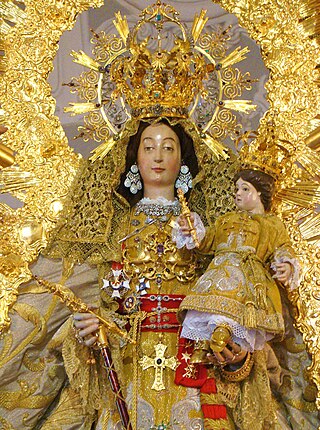 9
The Virgin of Los Remedios or Our Lady of Los Remedios is a title of the Virgin Mary developed by the Trinitarian Order, founded in the late 12th century. The devotion became tied to the Reconquista...
9
The Virgin of Los Remedios or Our Lady of Los Remedios is a title of the Virgin Mary developed by the Trinitarian Order, founded in the late 12th century. The devotion became tied to the Reconquista...
Sebastião da Gama
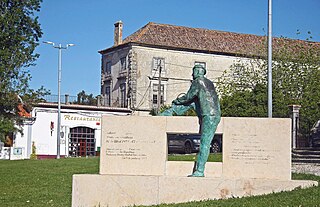 8
Sebastião Artur Cardoso da Gama was a Portuguese poet.
8
Sebastião Artur Cardoso da Gama was a Portuguese poet.
Francisco Rodrigues da Cruz
 8
Francisco Rodrigues da Cruz, SJ, more commonly known as Father Cruz was a Portuguese Catholic priest. Revered in Portugal for his apostolic fervor and charity, he visited prisons and hospitals in...
8
Francisco Rodrigues da Cruz, SJ, more commonly known as Father Cruz was a Portuguese Catholic priest. Revered in Portugal for his apostolic fervor and charity, he visited prisons and hospitals in...
António Sardinha
 8
António Sardinha was a Portuguese writer and leading theorist of the movement known as Integralismo Lusitano. He worldview was strongly conservative.
8
António Sardinha was a Portuguese writer and leading theorist of the movement known as Integralismo Lusitano. He worldview was strongly conservative.
Maria II of Portugal
 8
Dona Maria II "the Educator" or "the Good Mother", was Queen of Portugal from 1826 to 1828, and again from 1834 to 1853.
8
Dona Maria II "the Educator" or "the Good Mother", was Queen of Portugal from 1826 to 1828, and again from 1834 to 1853.
Clare of Assisi
 8
Chiara Offreduccio, known as Clare of Assisi, was an Italian saint who was one of the first followers of Francis of Assisi.
8
Chiara Offreduccio, known as Clare of Assisi, was an Italian saint who was one of the first followers of Francis of Assisi.
Sancho I of Portugal
 8
Sancho I of Portugal, nicknamed "the Populator", King of Portugal was the second but only surviving legitimate son and fifth child of Afonso I of Portugal by his wife, Maud of Savoy. Sancho succeeded...
8
Sancho I of Portugal, nicknamed "the Populator", King of Portugal was the second but only surviving legitimate son and fifth child of Afonso I of Portugal by his wife, Maud of Savoy. Sancho succeeded...
Henrique Galvão
 8
Henrique Carlos da Mata Galvão was a Portuguese military officer, writer and politician. He was initially a supporter but later become one of the strongest opponents of the Portuguese Estado Novo...
8
Henrique Carlos da Mata Galvão was a Portuguese military officer, writer and politician. He was initially a supporter but later become one of the strongest opponents of the Portuguese Estado Novo...
Pope Sylvester I
 8
Pope Sylvester I was the bishop of Rome from 31 January 314 until his death on 31 December 335. He filled the See of Rome at an important era in the history of the Western Church, though very little...
8
Pope Sylvester I was the bishop of Rome from 31 January 314 until his death on 31 December 335. He filled the See of Rome at an important era in the history of the Western Church, though very little...
Elizabeth of Portugal
 8
Elizabeth of Aragon, more commonly known as Elizabeth of Portugal, was queen consort of Portugal who is venerated as a saint in the Roman Catholic Church.
8
Elizabeth of Aragon, more commonly known as Elizabeth of Portugal, was queen consort of Portugal who is venerated as a saint in the Roman Catholic Church.
Saint Stephen
 8
Stephen is traditionally venerated as the protomartyr or first martyr of Christianity. According to the Acts of the Apostles, he was a deacon in the early church at Jerusalem who angered members of...
8
Stephen is traditionally venerated as the protomartyr or first martyr of Christianity. According to the Acts of the Apostles, he was a deacon in the early church at Jerusalem who angered members of...
Abel Salazar (actor)
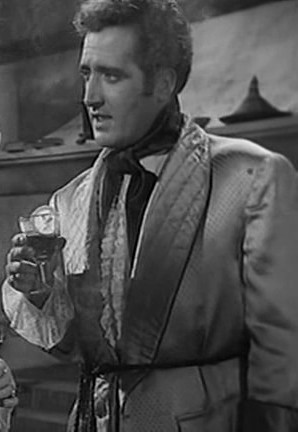 8
Abel Salazar García was a Mexican actor, producer and director. He appeared in 70 films between 1941 and 1989. He was a son of Don García and his wife, and brother to Don Alfredo Salazar.
8
Abel Salazar García was a Mexican actor, producer and director. He appeared in 70 films between 1941 and 1989. He was a son of Don García and his wife, and brother to Don Alfredo Salazar.
John III of Portugal
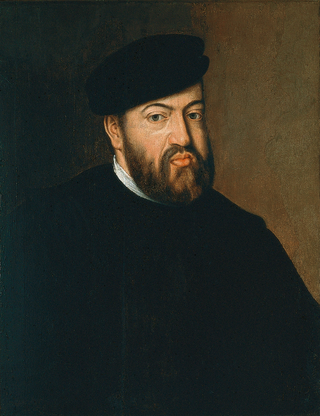 7
John III, nicknamed The Pious, was the King of Portugal and the Algarves from 1521 until his death in 1557. He was the son of King Manuel I and Maria of Aragon, the third daughter of King Ferdinand...
7
John III, nicknamed The Pious, was the King of Portugal and the Algarves from 1521 until his death in 1557. He was the son of King Manuel I and Maria of Aragon, the third daughter of King Ferdinand...
Eleanor of Viseu
 7
Eleanor of Viseu was a Portuguese infanta (princess) and later queen consort of Portugal. She is considered one of her country's most notable queens consort and one of the only two who were not...
7
Eleanor of Viseu was a Portuguese infanta (princess) and later queen consort of Portugal. She is considered one of her country's most notable queens consort and one of the only two who were not...
Francis Xavier
 7
Francis Xavier, SJ, venerated as Saint Francis Xavier, was a Spanish Catholic missionary and saint who co-founded the Society of Jesus and, as a representative of the Portuguese Empire, led the first...
7
Francis Xavier, SJ, venerated as Saint Francis Xavier, was a Spanish Catholic missionary and saint who co-founded the Society of Jesus and, as a representative of the Portuguese Empire, led the first...
Álvaro Cunhal
 7
Álvaro Barreirinhas Cunhal was a Portuguese communist revolutionary and politician. He was one of the major opponents of the dictatorial regime of the Estado Novo. He served as secretary-general of...
7
Álvaro Barreirinhas Cunhal was a Portuguese communist revolutionary and politician. He was one of the major opponents of the dictatorial regime of the Estado Novo. He served as secretary-general of...
José Falcón
 7
José Carlos Frita Falcão, known as José Falcón was a Portuguese matador whose bullfighting career spanned just over a decade. As of 2011, he was the last matador to be killed in the ring.
7
José Carlos Frita Falcão, known as José Falcón was a Portuguese matador whose bullfighting career spanned just over a decade. As of 2011, he was the last matador to be killed in the ring.
Pope Paul VI
 7
Pope Paul VI was head of the Catholic Church and sovereign of the Vatican City State from 21 June 1963 to his death in August 1978. Succeeding John XXIII, he continued the Second Vatican Council,...
7
Pope Paul VI was head of the Catholic Church and sovereign of the Vatican City State from 21 June 1963 to his death in August 1978. Succeeding John XXIII, he continued the Second Vatican Council,...
João Pinheiro Chagas
 7
João Pinheiro Chagas was a Portuguese politician, literary critic, propagandist, editor, and journalist. He was heavily involved in several rebellions condemning the monarchy and disseminating...
7
João Pinheiro Chagas was a Portuguese politician, literary critic, propagandist, editor, and journalist. He was heavily involved in several rebellions condemning the monarchy and disseminating...
José Relvas
 7
José Maria de Mascarenhas Relvas de Campos (Golegã, Golegã, 5 March 1858 – Alpiarça, Casa dos Patudos, 31 October 1929; Portuguese pronunciation: [ʒuˈzɛ ˈʁɛlvɐʃ], was a Portuguese politician and 70th...
7
José Maria de Mascarenhas Relvas de Campos (Golegã, Golegã, 5 March 1858 – Alpiarça, Casa dos Patudos, 31 October 1929; Portuguese pronunciation: [ʒuˈzɛ ˈʁɛlvɐʃ], was a Portuguese politician and 70th...
Saint Christopher
 7
Saint Christopher is venerated by several Christian denominations as a martyr killed in the reign of the 3rd-century Roman emperor Decius, or alternatively under the emperor Maximinus Daia. There...
7
Saint Christopher is venerated by several Christian denominations as a martyr killed in the reign of the 3rd-century Roman emperor Decius, or alternatively under the emperor Maximinus Daia. There...
Garcia de Resende
 7
Garcia de Resende was a Portuguese poet and editor. He served John II as a page and private secretary. After John's death, he continued to enjoy the same favour with Manuel I, whom he accompanied to...
7
Garcia de Resende was a Portuguese poet and editor. He served John II as a page and private secretary. After John's death, he continued to enjoy the same favour with Manuel I, whom he accompanied to...
António Nobre
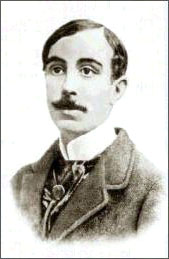 7
António Pereira Nobre was a Portuguese poet. His masterpiece, Só, was the only book he published.
7
António Pereira Nobre was a Portuguese poet. His masterpiece, Só, was the only book he published.
Bernardo Santareno
 7
Bernardo Santareno is the pseudonym of António Martinho do Rosário, a Portuguese writer.
7
Bernardo Santareno is the pseudonym of António Martinho do Rosário, a Portuguese writer.
José Gomes Ferreira
 7
José Gomes Ferreira, GOSE, GOL was a Portuguese poet and fiction writer with a vast work of varied influences. Gomes Ferreira was also a political activist who participated in the resistance against...
7
José Gomes Ferreira, GOSE, GOL was a Portuguese poet and fiction writer with a vast work of varied influences. Gomes Ferreira was also a political activist who participated in the resistance against...
José Frederico Ulrich
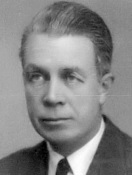 6
José Frederico do Casal Ribeiro Ulrich ComC • GCC, mais conhecido por José Frederico Ulrich, foi um engenheiro civil, professor universitário, administrador de empresas e político que se notabilizou...
6
José Frederico do Casal Ribeiro Ulrich ComC • GCC, mais conhecido por José Frederico Ulrich, foi um engenheiro civil, professor universitário, administrador de empresas e político que se notabilizou...
Emídio Navarro
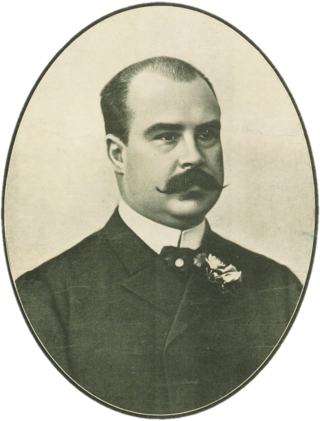 6
Emídio Júlio Navarro foi um político português. Fez parte do Partido Progressista,
6
Emídio Júlio Navarro foi um político português. Fez parte do Partido Progressista,
Fontes Pereira de Melo
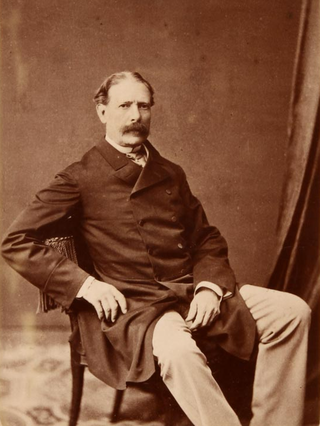 6
António Maria de Fontes Pereira de Melo GCTE KGF was a Portuguese statesman and engineer. He was a leading parliamentarian and political figure of his time. Among other posts held, he was six times...
6
António Maria de Fontes Pereira de Melo GCTE KGF was a Portuguese statesman and engineer. He was a leading parliamentarian and political figure of his time. Among other posts held, he was six times...
Ruy Luís Gomes
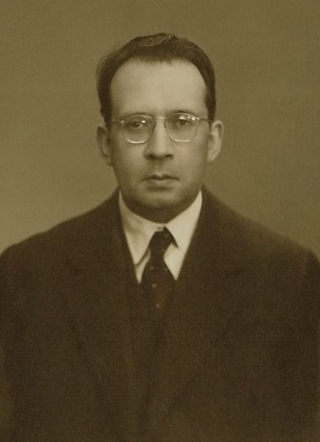 6
Ruy Luís Gomes (5 December 1905 – 27 October 1984) was a Portuguese mathematician who made significant contributions to the development of mathematical physics and the state of academia in Portugal...
6
Ruy Luís Gomes (5 December 1905 – 27 October 1984) was a Portuguese mathematician who made significant contributions to the development of mathematical physics and the state of academia in Portugal...
José Dias Coelho
 6
José Dias Coelho was a Portuguese painter and sculptor, an anti-fascist and an important member of the Portuguese Communist Party.
6
José Dias Coelho was a Portuguese painter and sculptor, an anti-fascist and an important member of the Portuguese Communist Party.
Alfredo Keil
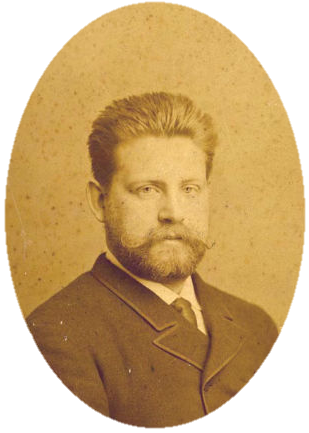 6
Alfredo Cristiano Keil was a Portuguese romantic composer and painter.
6
Alfredo Cristiano Keil was a Portuguese romantic composer and painter.
Nosso Senhor dos Aflitos
 6
Nosso Senhor dos Aflitos, ou simplesmente Senhor Jesus dos Aflitos e Senhor dos Aflitos, é uma invocação religiosa a Jesus Cristo e uma devoção especial na Igreja Católica a Ele dirigida, a qual faz...
6
Nosso Senhor dos Aflitos, ou simplesmente Senhor Jesus dos Aflitos e Senhor dos Aflitos, é uma invocação religiosa a Jesus Cristo e uma devoção especial na Igreja Católica a Ele dirigida, a qual faz...
Pope John XXI
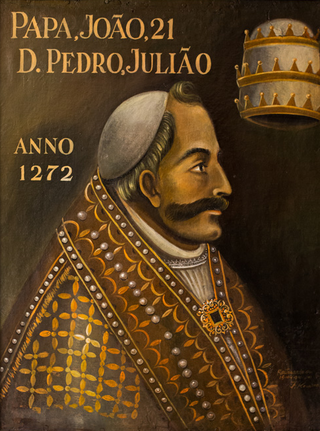 6
Pope John XXI, born Pedro Julião, was the bishop of Rome and head of the Catholic Church from 8 September 1276 to his death. He is the only Portuguese pope in history. He is sometimes identified with...
6
Pope John XXI, born Pedro Julião, was the bishop of Rome and head of the Catholic Church from 8 September 1276 to his death. He is the only Portuguese pope in history. He is sometimes identified with...
Mammes of Caesarea
 6
Saint Mammes of Caesarea was a child-martyr of the 3rd century, who was martyred at Caesarea. His parents, Theodotus and Rufina, were also martyred.
6
Saint Mammes of Caesarea was a child-martyr of the 3rd century, who was martyred at Caesarea. His parents, Theodotus and Rufina, were also martyred.
Guilherme Gomes Fernandes
 6
Guilherme Gomes Fernandes (1850–1902) helped to found the Humanitarian Association of Volunteer Firefighters (1874–75) and the Public Salvation Corps in Portugal. He became Commander of the fire...
6
Guilherme Gomes Fernandes (1850–1902) helped to found the Humanitarian Association of Volunteer Firefighters (1874–75) and the Public Salvation Corps in Portugal. He became Commander of the fire...
Otelo Saraiva de Carvalho
 6
Otelo Nuno Romão Saraiva de Carvalho, GCL was a Portuguese military officer that was the chief strategist of the 1974 Carnation Revolution and who later became a terrorist leader. After the...
6
Otelo Nuno Romão Saraiva de Carvalho, GCL was a Portuguese military officer that was the chief strategist of the 1974 Carnation Revolution and who later became a terrorist leader. After the...
Rita of Cascia
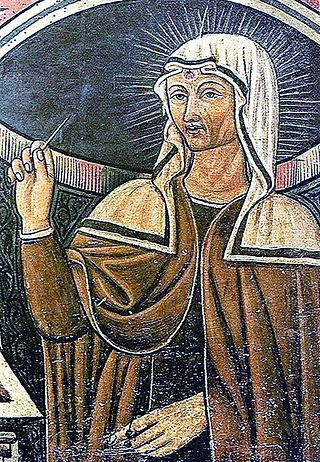 6
Rita of Cascia, OSA, was an Italian widow and Augustinian nun. After Rita's husband died, she joined an Augustinian community of religious sisters, where she was known both for practicing...
6
Rita of Cascia, OSA, was an Italian widow and Augustinian nun. After Rita's husband died, she joined an Augustinian community of religious sisters, where she was known both for practicing...
Gomes Freire de Andrade
 6
Gomes Freire de Andrade, ComC was a field marshal and officer of the Portuguese army. Towards the end of his military career, he commanded a Portuguese legion in the French army and participated in...
6
Gomes Freire de Andrade, ComC was a field marshal and officer of the Portuguese army. Towards the end of his military career, he commanded a Portuguese legion in the French army and participated in...
Raul Brandão
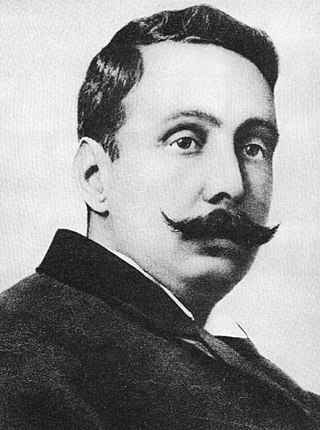 6
Raul Germano Brandão was a Portuguese writer, journalist and military officer, notable for the realism of his literary descriptions and by the lyricism of his language. Brandão was born in Foz do...
6
Raul Germano Brandão was a Portuguese writer, journalist and military officer, notable for the realism of his literary descriptions and by the lyricism of his language. Brandão was born in Foz do...
Manuel II of Portugal
 6
Dom Manuel II, "the Patriot" or "the Unfortunate", was the last King of Portugal, ascending the throne after the assassination of his father, King Carlos I, and his elder brother, Luís Filipe, the...
6
Dom Manuel II, "the Patriot" or "the Unfortunate", was the last King of Portugal, ascending the throne after the assassination of his father, King Carlos I, and his elder brother, Luís Filipe, the...
João Villaret
 6
João Henrique Pereira Villaret was a Portuguese actor.
6
João Henrique Pereira Villaret was a Portuguese actor.
Jaime Cortesão
 6
Jaime Zuzarte Cortesão was a Portuguese medical doctor, politician, historian and writer.
6
Jaime Zuzarte Cortesão was a Portuguese medical doctor, politician, historian and writer.
Joaquim Ferreira dos Santos, 1.º Conde de Ferreira
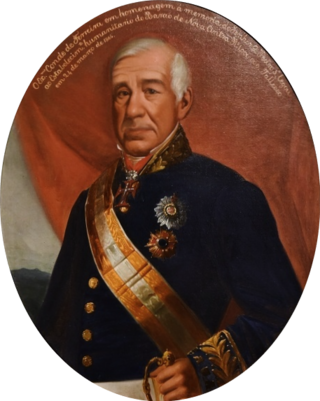 6
Joaquim Ferreira dos Santos ComC • ComNSC, 1.º Barão de Ferreira, 1.º Visconde de Ferreira e 1.º Conde de Ferreira, foi um traficante de escravos, empresário comercial e filantropo português.
6
Joaquim Ferreira dos Santos ComC • ComNSC, 1.º Barão de Ferreira, 1.º Visconde de Ferreira e 1.º Conde de Ferreira, foi um traficante de escravos, empresário comercial e filantropo português.
John IV of Portugal
 6
John IV, nicknamed John the Restorer, was the King of Portugal whose reign, lasting from 1640 until his death, began the Portuguese restoration of independence from Habsburg Spanish rule. His...
6
John IV, nicknamed John the Restorer, was the King of Portugal whose reign, lasting from 1640 until his death, began the Portuguese restoration of independence from Habsburg Spanish rule. His...
Amélie of Orléans
 6
Dona Maria Amélia was the last Queen of Portugal as the wife of Carlos I of Portugal. She was regent of Portugal during the absence of her spouse in 1895.
6
Dona Maria Amélia was the last Queen of Portugal as the wife of Carlos I of Portugal. She was regent of Portugal during the absence of her spouse in 1895.
Bartholomew the Apostle
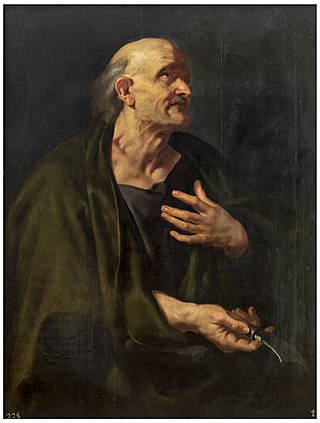 6
Bartholomew was one of the twelve apostles of Jesus according to the New Testament. Most scholars today identify Bartholomew as Nathanael or Nathaniel, who appears in the Gospel of John.
6
Bartholomew was one of the twelve apostles of Jesus according to the New Testament. Most scholars today identify Bartholomew as Nathanael or Nathaniel, who appears in the Gospel of John.
José Fernando de Sousa
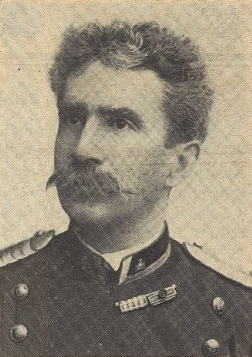 6
O Conselheiro José Fernando de Sousa, geralmente conhecido como Fernando de Sousa e pelo pseudónimo jornalístico Nemo GOC foi um engenheiro, jornalista, escritor, político e militar português.
6
O Conselheiro José Fernando de Sousa, geralmente conhecido como Fernando de Sousa e pelo pseudónimo jornalístico Nemo GOC foi um engenheiro, jornalista, escritor, político e militar português.
José Cardoso Pires
 6
José Cardoso was a Portuguese author of short stories, novels, plays, and political satire.
6
José Cardoso was a Portuguese author of short stories, novels, plays, and political satire.
Ernesto Melo Antunes
 6
Ernesto Augusto de Melo Antunes junior, GCL was a Portuguese military officer who had a major role in the Carnation Revolution of 25 April 1974.
6
Ernesto Augusto de Melo Antunes junior, GCL was a Portuguese military officer who had a major role in the Carnation Revolution of 25 April 1974.
Mouzinho da Silveira
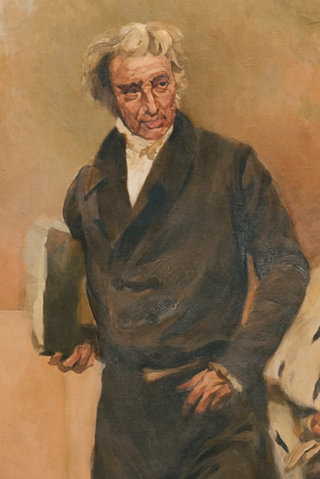 5
José Xavier Mouzinho da Silveira was a Portuguese statesman, jurist and politician, as well as one of the most important personalities of the Liberal Revolution of 1820, responsible for legislation...
5
José Xavier Mouzinho da Silveira was a Portuguese statesman, jurist and politician, as well as one of the most important personalities of the Liberal Revolution of 1820, responsible for legislation...
José Malhoa
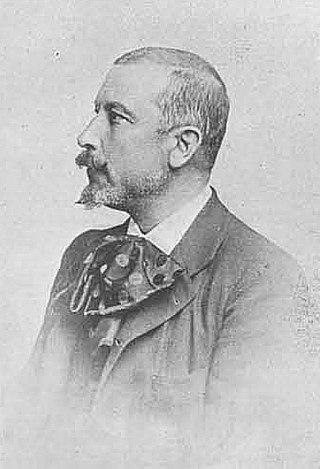 5
José Vital Branco Malhoa, known simply as José Malhoa was a Portuguese painter.
5
José Vital Branco Malhoa, known simply as José Malhoa was a Portuguese painter.
Eulalia of Barcelona
 5
Eulalia, co-patron saint of Barcelona, was a 13-year-old Roman Christian virgin who was martyred in Barcelona during the persecution of Christians in the reign of emperor Diocletian. There is some...
5
Eulalia, co-patron saint of Barcelona, was a 13-year-old Roman Christian virgin who was martyred in Barcelona during the persecution of Christians in the reign of emperor Diocletian. There is some...
João das Regras
 5
João das Regras, in English, literally John of the Rules, was a Portuguese jurist of the second half of the 14th century. In the context of the 1383—1385 Crisis, in Portugal, he stood out for his...
5
João das Regras, in English, literally John of the Rules, was a Portuguese jurist of the second half of the 14th century. In the context of the 1383—1385 Crisis, in Portugal, he stood out for his...
Manuel Marques
 5
Manuel Pedro Correia de Oliveira Marques é um ator português.
5
Manuel Pedro Correia de Oliveira Marques é um ator português.
Columbano Bordalo Pinheiro
 5
Columbano Bordalo Pinheiro, who is usually referred to as Columbano, was a Portuguese Realist painter. Usually considered the greatest Portuguese painter of the 19th century, he has been compared to...
5
Columbano Bordalo Pinheiro, who is usually referred to as Columbano, was a Portuguese Realist painter. Usually considered the greatest Portuguese painter of the 19th century, he has been compared to...
Ildefonsus
 5
Ildefonsus or Ildephonsus was a scholar and theologian who served as the metropolitan Bishop of Toledo for the last decade of his life. His Gothic name was Hildefuns. In the Ethiopian Orthodox...
5
Ildefonsus or Ildephonsus was a scholar and theologian who served as the metropolitan Bishop of Toledo for the last decade of his life. His Gothic name was Hildefuns. In the Ethiopian Orthodox...
João Gonçalves Zarco da Câmara
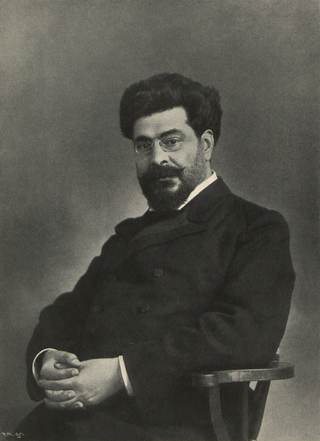 5
João Maria Evangelista Gonçalves Zarco da Câmara, mais conhecido como D. João da Câmara, foi um dramaturgo português. Foi o primeiro português a ser nomeado para o Prémio Nobel da Literatura, em 1901.
5
João Maria Evangelista Gonçalves Zarco da Câmara, mais conhecido como D. João da Câmara, foi um dramaturgo português. Foi o primeiro português a ser nomeado para o Prémio Nobel da Literatura, em 1901.
Joaquim António de Aguiar
 5
Joaquim António de Aguiar was a Portuguese politician. He held several relevant political posts during the Portuguese constitutional monarchy, namely as leader of the Cartists and later of the...
5
Joaquim António de Aguiar was a Portuguese politician. He held several relevant political posts during the Portuguese constitutional monarchy, namely as leader of the Cartists and later of the...
Duke of Ávila and Bolama
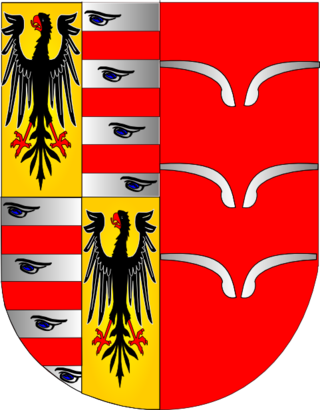 5
This was a Portuguese nobility title granted by King Luís I of Portugal to António José de Ávila, 1st Duke of Ávila and Bolama, a remarkable Portuguese politician and ambassador during the liberal...
5
This was a Portuguese nobility title granted by King Luís I of Portugal to António José de Ávila, 1st Duke of Ávila and Bolama, a remarkable Portuguese politician and ambassador during the liberal...
Fernão Mendes Pinto
 5
Fernão Mendes Pinto was a Portuguese explorer and writer. His voyages are recorded in Pilgrimage, his autobiographical memoir, which was published posthumously in 1614. The historical accuracy of the...
5
Fernão Mendes Pinto was a Portuguese explorer and writer. His voyages are recorded in Pilgrimage, his autobiographical memoir, which was published posthumously in 1614. The historical accuracy of the...
José Leite de Vasconcelos
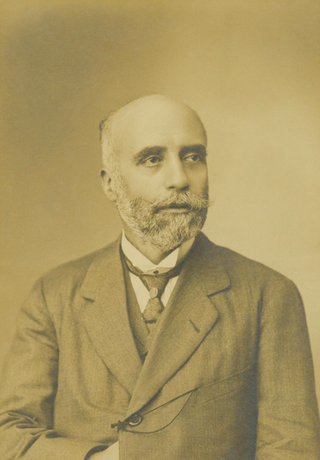 5
José Leite de Vasconcelos Cardoso Pereira de Melo, known as simply Leite de Vasconcelos, was a Portuguese ethnographer, archaeologist and prolific author who wrote extensively on Portuguese philology...
5
José Leite de Vasconcelos Cardoso Pereira de Melo, known as simply Leite de Vasconcelos, was a Portuguese ethnographer, archaeologist and prolific author who wrote extensively on Portuguese philology...
Tristão Vaz Teixeira
 5
Tristão Vaz Teixeira was a Portuguese navigator and explorer who, together with João Gonçalves Zarco and Bartolomeu Perestrelo, was the official discoverer and one of the first settlers of the...
5
Tristão Vaz Teixeira was a Portuguese navigator and explorer who, together with João Gonçalves Zarco and Bartolomeu Perestrelo, was the official discoverer and one of the first settlers of the...
António Ferreira Gomes
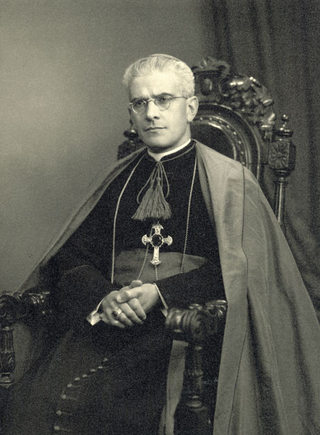 5
António Ferreira Gomes, GCSE, GCL was a Portuguese Roman Catholic bishop, and is considered one of the most notable figures of Portuguese Catholic hierarchy in the 20th century. He was forced into a...
5
António Ferreira Gomes, GCSE, GCL was a Portuguese Roman Catholic bishop, and is considered one of the most notable figures of Portuguese Catholic hierarchy in the 20th century. He was forced into a...
Martim Moniz
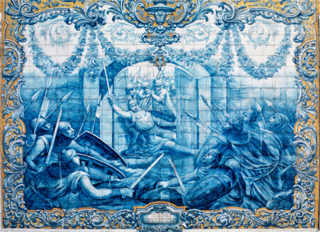 5
Martim Moniz was a Portuguese knight of noble birth, and famous figure in the Siege of Lisbon in 1147.
5
Martim Moniz was a Portuguese knight of noble birth, and famous figure in the Siege of Lisbon in 1147.
Maria Veleda
 5
Maria Veleda, the pseudonym widely used by Maria Carolina Frederico Crispin (1871–1955), was a Portuguese educator, journalist and activist. One of the most effective early feminists in Portugal, she...
5
Maria Veleda, the pseudonym widely used by Maria Carolina Frederico Crispin (1871–1955), was a Portuguese educator, journalist and activist. One of the most effective early feminists in Portugal, she...
Teixeira de Pascoaes
 5
Joaquim Pereira Teixeira de Vasconcelos, better known by his pen name Teixeira de Pascoaes, was a Portuguese poet. He was nominated five times for the Nobel Prize in Literature.
5
Joaquim Pereira Teixeira de Vasconcelos, better known by his pen name Teixeira de Pascoaes, was a Portuguese poet. He was nominated five times for the Nobel Prize in Literature.
Bernardim Ribeiro
 5
Bernardim Ribeiro was a Renaissance Portuguese poet and writer.
5
Bernardim Ribeiro was a Renaissance Portuguese poet and writer.
Eduardo de Arantes e Oliveira
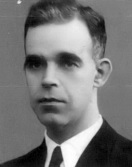 5
Eduardo de Arantes e Oliveira CvC • ComC • GCC • OA • GCSE • GCIH foi um engenheiro e político português.
5
Eduardo de Arantes e Oliveira CvC • ComC • GCC • OA • GCSE • GCIH foi um engenheiro e político português.
Simon the Zealot
 5
Simon the Zealot or Simon the Canaanite or Simon the Canaanean was one of the most obscure among the apostles of Jesus. A few pseudepigraphical writings were connected to him, but Jerome does not...
5
Simon the Zealot or Simon the Canaanite or Simon the Canaanean was one of the most obscure among the apostles of Jesus. A few pseudepigraphical writings were connected to him, but Jerome does not...
Sampaio Bruno
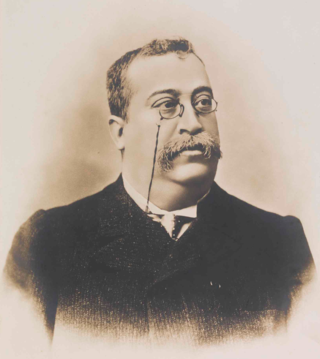 5
José Pereira de Sampaio, de pseudónimo Bruno e Sampaio Bruno para a posteridade, foi um escritor, ensaísta e filósofo portuense e figura cimeira do pensamento português do seu tempo. É considerado o...
5
José Pereira de Sampaio, de pseudónimo Bruno e Sampaio Bruno para a posteridade, foi um escritor, ensaísta e filósofo portuense e figura cimeira do pensamento português do seu tempo. É considerado o...
José Estêvão Coelho de Magalhães
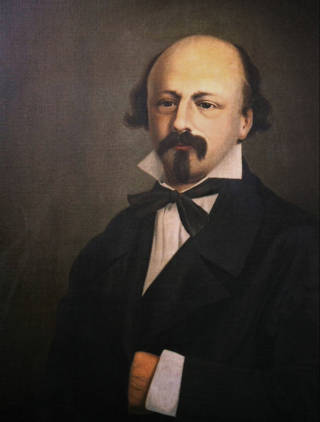 4
José Estêvão Coelho de Magalhães, mais conhecido por José Estêvão, foi um notável jornalista, político e orador parlamentar português, sendo durante o período de 1836 a 1862 a figura dominante da...
4
José Estêvão Coelho de Magalhães, mais conhecido por José Estêvão, foi um notável jornalista, político e orador parlamentar português, sendo durante o período de 1836 a 1862 a figura dominante da...
Luís da Câmara Pestana
 4
Luís da Câmara Pestana foi um higienista e professor universitário português que se destacou como um dos pioneiros da bacteriologia. Formou-se na Escola Médico-Cirúrgica de Lisboa (1889), com a tese...
4
Luís da Câmara Pestana foi um higienista e professor universitário português que se destacou como um dos pioneiros da bacteriologia. Formou-se na Escola Médico-Cirúrgica de Lisboa (1889), com a tese...
Carlos Pinhão
 4
Carlos Pinhão ComM foi um jornalista e escritor português.
4
Carlos Pinhão ComM foi um jornalista e escritor português.
Pedro I of Brazil
 4
Dom Pedro I was the founder and first ruler of the Empire of Brazil, where he was known as "the Liberator". As King Dom Pedro IV, he reigned briefly over Portugal, where he also became known as "the...
4
Dom Pedro I was the founder and first ruler of the Empire of Brazil, where he was known as "the Liberator". As King Dom Pedro IV, he reigned briefly over Portugal, where he also became known as "the...
António Rodrigues Sampaio
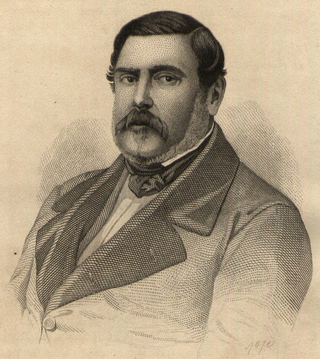 4
António Rodrigues Sampaio was a Portuguese politician and the President of the Council of Ministers from 25 March to 14 November 1881.
4
António Rodrigues Sampaio was a Portuguese politician and the President of the Council of Ministers from 25 March to 14 November 1881.
João de Barros
 4
João de Barros, nicknamed the "Portuguese Livy", is one of the first great Portuguese historians, most famous for his Décadas da Ásia, a history of the Portuguese in India, Asia, and southeast Africa.
4
João de Barros, nicknamed the "Portuguese Livy", is one of the first great Portuguese historians, most famous for his Décadas da Ásia, a history of the Portuguese in India, Asia, and southeast Africa.
Passos Manuel
 4
Manuel da Silva Passos was a Portuguese jurist and politician, one of the most notable personalities of 19th-century Portuguese Liberalism. He is more commonly referred to as Passos Manuel, due to...
4
Manuel da Silva Passos was a Portuguese jurist and politician, one of the most notable personalities of 19th-century Portuguese Liberalism. He is more commonly referred to as Passos Manuel, due to...
António Soares dos Reis
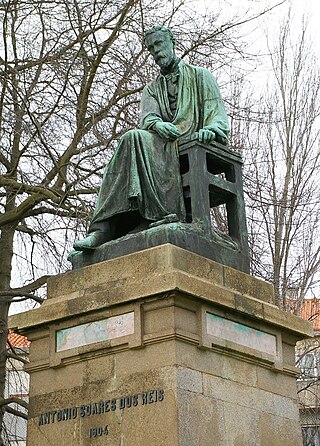 4
António Manuel Soares dos Reis was a Portuguese sculptor.
4
António Manuel Soares dos Reis was a Portuguese sculptor.
Julian the Hospitaller
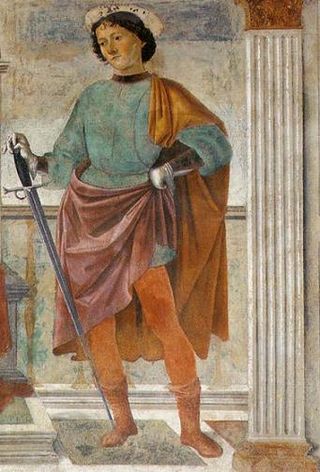 4
Saint Julian the Hospitaller is a saint venerated in the Catholic and Eastern Orthodox Churches. He is patron saint of the cities of Ghent (Belgium), Saint Julian's (Malta) and Macerata (Italy).
4
Saint Julian the Hospitaller is a saint venerated in the Catholic and Eastern Orthodox Churches. He is patron saint of the cities of Ghent (Belgium), Saint Julian's (Malta) and Macerata (Italy).
Euphemia
 4
Euphemia, known as the All-praised in the Eastern Orthodox Church, was a virgin martyr, who died for her faith at Chalcedon in 303 AD.
4
Euphemia, known as the All-praised in the Eastern Orthodox Church, was a virgin martyr, who died for her faith at Chalcedon in 303 AD.
José Joaquim Almeida
 4
José Joaquim Almeida, was a Portuguese-born American privateer who fought in the Anglo-American War of 1812 and the Argentine War of Independence.
4
José Joaquim Almeida, was a Portuguese-born American privateer who fought in the Anglo-American War of 1812 and the Argentine War of Independence.
Carlos Seixas
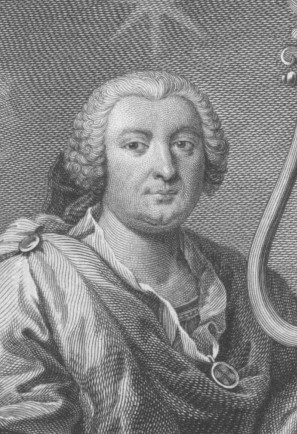 4
José António Carlos de Seixas was a pre-eminent Portuguese composer of the 18th century. An accomplished virtuoso of both the organ and the harpsichord, Seixas succeeded his father as the organist...
4
José António Carlos de Seixas was a pre-eminent Portuguese composer of the 18th century. An accomplished virtuoso of both the organ and the harpsichord, Seixas succeeded his father as the organist...
Garcia de Orta
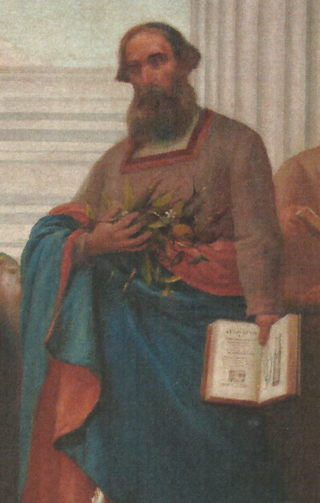 4
Garcia de Orta was a Portuguese physician, herbalist, and naturalist, who worked primarily in Goa and Bombay in Portuguese India.
4
Garcia de Orta was a Portuguese physician, herbalist, and naturalist, who worked primarily in Goa and Bombay in Portuguese India.
José Pedro da Silva
 4
José Pedro da Silva, sacerdote açoriano que foi bispo auxiliar do Patriarcado de Lisboa e bispo da Diocese de Viseu.
4
José Pedro da Silva, sacerdote açoriano que foi bispo auxiliar do Patriarcado de Lisboa e bispo da Diocese de Viseu.
Tomás Ribeiro (writer)
 4
Tomás António Ribeiro Ferreira, better known as Tomás Ribeiro or Thomaz Ribeiro, was a Portuguese politician, journalist, poet and Ultra-Romantic writer.
4
Tomás António Ribeiro Ferreira, better known as Tomás Ribeiro or Thomaz Ribeiro, was a Portuguese politician, journalist, poet and Ultra-Romantic writer.
Marcos Portugal
 4
Marcos António da Fonseca Portugal, known as Marcos Portugal, or Marco Portogallo, was a Portuguese-born Brazilian classical composer, who achieved great international fame for his operas.
4
Marcos António da Fonseca Portugal, known as Marcos Portugal, or Marco Portogallo, was a Portuguese-born Brazilian classical composer, who achieved great international fame for his operas.
Alberto Araújo
 4
Alberto Emílio de Araújo foi um político revolucionário português antifascista opositor à ditadura e militante destacado do Partido Comunista Português, vítima do regime do Estado Novo.
4
Alberto Emílio de Araújo foi um político revolucionário português antifascista opositor à ditadura e militante destacado do Partido Comunista Português, vítima do regime do Estado Novo.
Joaquim Pedro de Oliveira Martins
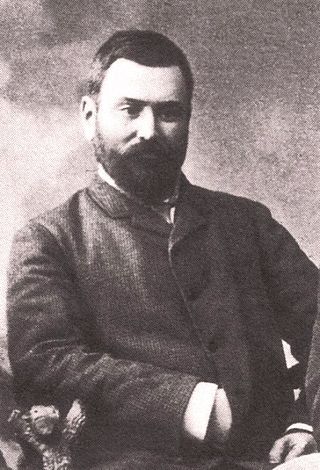 4
Joaquim Pedro de Oliveira Martins was a Portuguese politician and social scientist. He was a writer, a deputy, a minister; he became the 47th Minister for Treasury Affairs on 17 January 1892.
4
Joaquim Pedro de Oliveira Martins was a Portuguese politician and social scientist. He was a writer, a deputy, a minister; he became the 47th Minister for Treasury Affairs on 17 January 1892.
José Joaquim Rodrigues de Freitas
 4
José Joaquim Rodrigues de Freitas foi professor catedrático, escritor, jornalista e político português.
4
José Joaquim Rodrigues de Freitas foi professor catedrático, escritor, jornalista e político português.
António Vitorino da França Borges (escritor)
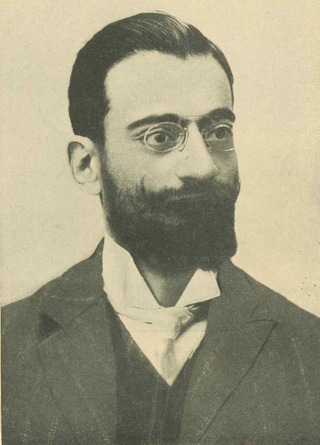 4
António Vitorino da França Borges foi um funcionário público, jornalista, escritor, político, maçon e lutador pelos ideais republicanos em Portugal. Foi tio paterno do militar e político homónimo...
4
António Vitorino da França Borges foi um funcionário público, jornalista, escritor, político, maçon e lutador pelos ideais republicanos em Portugal. Foi tio paterno do militar e político homónimo...
Bartolomeu Perestrello
 4
Bartolomeu Perestrello, 1st Capitão Donatário, Lord and Governor of the Island of Porto Santo was a Portuguese navigator and explorer that is claimed to have discovered and populated Porto Santo...
4
Bartolomeu Perestrello, 1st Capitão Donatário, Lord and Governor of the Island of Porto Santo was a Portuguese navigator and explorer that is claimed to have discovered and populated Porto Santo...
João de Andrade Corvo
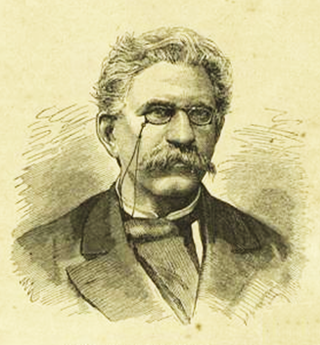 4
João de Andrade Corvo foi Ministro dos Negócios Estrangeiros de Portugal de 13 de setembro de 1871 a 29 de janeiro de 1878, durante o governo de Fontes Pereira de Melo. Nesse período também acumulou...
4
João de Andrade Corvo foi Ministro dos Negócios Estrangeiros de Portugal de 13 de setembro de 1871 a 29 de janeiro de 1878, durante o governo de Fontes Pereira de Melo. Nesse período também acumulou...
John de Britto
 4
John de Britto, SJ, also known as Arul Anandar, was a Portuguese Jesuit missionary and martyr, often called "the Portuguese St Francis Xavier" by Indian Catholics.
4
John de Britto, SJ, also known as Arul Anandar, was a Portuguese Jesuit missionary and martyr, often called "the Portuguese St Francis Xavier" by Indian Catholics.
Pope Gregory I
 4
Pope Gregory I, commonly known as Saint Gregory the Great, was the 64th Bishop of Rome from 3 September 590 to his death. He is known for instituting the first recorded large-scale mission from Rome,...
4
Pope Gregory I, commonly known as Saint Gregory the Great, was the 64th Bishop of Rome from 3 September 590 to his death. He is known for instituting the first recorded large-scale mission from Rome,...
Gaspar Corte-Real
 4
Gaspar Corte-Real (1450–1501) was a Portuguese explorer who, alongside his father João Vaz Corte-Real and brother Miguel, participated in various exploratory voyages sponsored by the Portuguese...
4
Gaspar Corte-Real (1450–1501) was a Portuguese explorer who, alongside his father João Vaz Corte-Real and brother Miguel, participated in various exploratory voyages sponsored by the Portuguese...
Pope John XXIII
 4
Pope John XXIII was head of the Catholic Church and sovereign of the Vatican City State from 28 October 1958 until his death in June 1963.
4
Pope John XXIII was head of the Catholic Church and sovereign of the Vatican City State from 28 October 1958 until his death in June 1963.
Augusto Gil
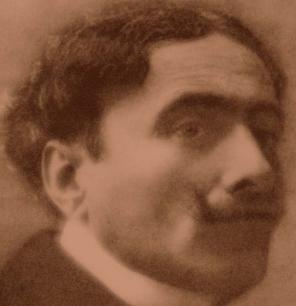 4
Augusto César Ferreira Gil was a Portuguese lawyer and poet.
4
Augusto César Ferreira Gil was a Portuguese lawyer and poet.
Luís Augusto Rebelo da Silva
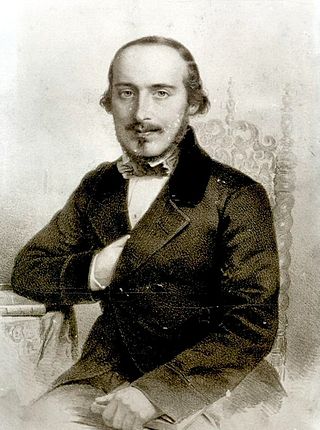 4
Luís Augusto Rebelo da Silva foi um jornalista, historiador, romancista e político português, colaborador activo de múltiplos periódicos e membro das tertúlias intelectuais e políticas lisboetas da...
4
Luís Augusto Rebelo da Silva foi um jornalista, historiador, romancista e político português, colaborador activo de múltiplos periódicos e membro das tertúlias intelectuais e políticas lisboetas da...
Saint Justa and Saint Rufina
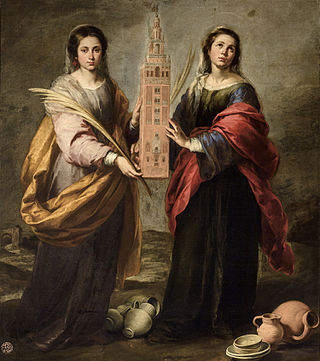 4
Saint Justa and Saint Rufina is an oil on canvas painting by Bartolomé Esteban Murillo, created c. 1666, now held in the Museum of Fine Arts of Seville.
4
Saint Justa and Saint Rufina is an oil on canvas painting by Bartolomé Esteban Murillo, created c. 1666, now held in the Museum of Fine Arts of Seville.
Francisco de Almeida
 4
Dom Francisco de Almeida, also known as the Great Dom Francisco, was a Portuguese nobleman, soldier and explorer. He distinguished himself as a counsellor to King John II of Portugal and later in the...
4
Dom Francisco de Almeida, also known as the Great Dom Francisco, was a Portuguese nobleman, soldier and explorer. He distinguished himself as a counsellor to King John II of Portugal and later in the...
Francisco Manoel de Nascimento
 4
Francisco Manoel de Nascimento, better known by the literary name of Filinto Elísio, bestowed on him by the Marquise of Alorna, was a Portuguese poet and the reputed son of a Lisbon boat-owner.
4
Francisco Manoel de Nascimento, better known by the literary name of Filinto Elísio, bestowed on him by the Marquise of Alorna, was a Portuguese poet and the reputed son of a Lisbon boat-owner.
Paulo da Gama
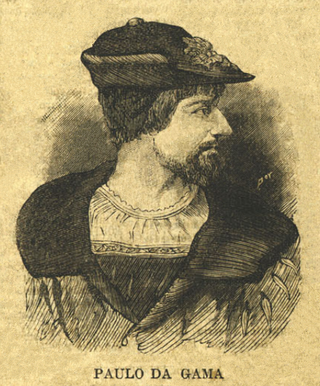 4
Paulo da Gama was a Portuguese explorer, son of Estêvão da Gama and Isabel Sodré, and the older brother of Vasco da Gama.
4
Paulo da Gama was a Portuguese explorer, son of Estêvão da Gama and Isabel Sodré, and the older brother of Vasco da Gama.
João Vaz Corte-Real
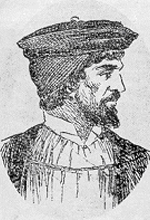 4
João Vaz Corte-Real was a Portuguese sailor, claimed by some accounts to have been an explorer of a land called Terra Nova do Bacalhau, speculated to possibly have been a part of North America. These...
4
João Vaz Corte-Real was a Portuguese sailor, claimed by some accounts to have been an explorer of a land called Terra Nova do Bacalhau, speculated to possibly have been a part of North America. These...
Joaquim Agostinho
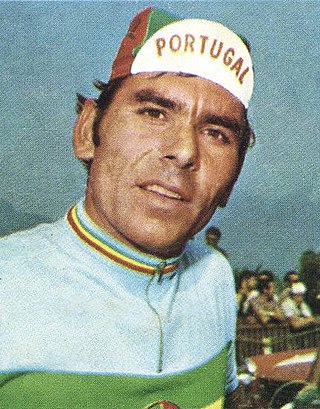 4
Joaquim Fernandes Agostinho, OIH was a Portuguese professional bicycle racer. He was champion of Portugal in six successive years. He rode the Tour de France 13 times and finished all but once,...
4
Joaquim Fernandes Agostinho, OIH was a Portuguese professional bicycle racer. He was champion of Portugal in six successive years. He rode the Tour de France 13 times and finished all but once,...
Beatriz Costa
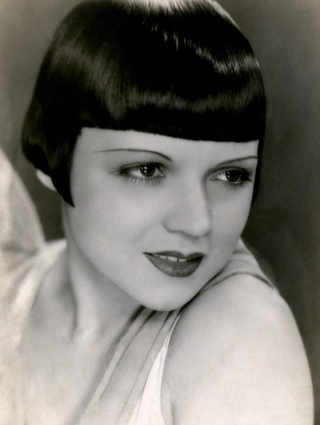 4
Beatriz Costa was a Portuguese actress, the best-known actress of the golden age of Portuguese cinema. She was the author of several books.
4
Beatriz Costa was a Portuguese actress, the best-known actress of the golden age of Portuguese cinema. She was the author of several books.
Mário Viegas
 4
António Mário Lopes Pereira Viegas foi um actor, encenador e recitador português. É considerado um dos melhores actores da sua geração e um dos maiores recitadores de poesia de Portugal.
4
António Mário Lopes Pereira Viegas foi um actor, encenador e recitador português. É considerado um dos melhores actores da sua geração e um dos maiores recitadores de poesia de Portugal.
Louis IX of France
 4
Louis IX, commonly revered as Saint Louis, was King of France from 1226 until his death in 1270. He is widely recognized as the most distinguished of the Direct Capetians. Following the death of his...
4
Louis IX, commonly revered as Saint Louis, was King of France from 1226 until his death in 1270. He is widely recognized as the most distinguished of the Direct Capetians. Following the death of his...
Ernesto Hintze Ribeiro
 4
Ernesto Rodolfo Hintze Ribeiro was a Portuguese politician, statesman, and nobleman from the Azores, who served as Prime Minister of Portugal three times, during King Carlos I's reign.
4
Ernesto Rodolfo Hintze Ribeiro was a Portuguese politician, statesman, and nobleman from the Azores, who served as Prime Minister of Portugal three times, during King Carlos I's reign.
Aristides de Sousa Mendes
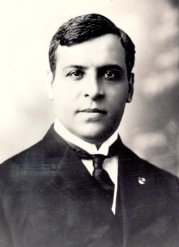 4
Aristides de Sousa Mendes do Amaral e Abranches was a Portuguese consul during World War II.
4
Aristides de Sousa Mendes do Amaral e Abranches was a Portuguese consul during World War II.
Júlio Dantas
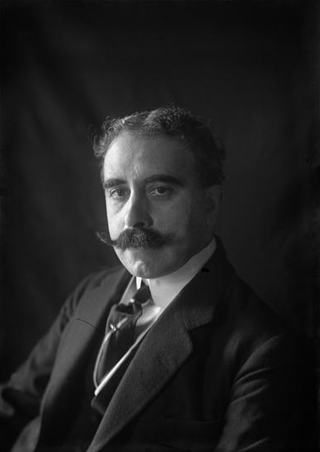 4
Júlio Dantas, GCC was a Portuguese doctor, poet, journalist, politician, diplomat and dramatist. He was born in Lagos and was a prolific writer; he cultivated various literary genres, from poetry to...
4
Júlio Dantas, GCC was a Portuguese doctor, poet, journalist, politician, diplomat and dramatist. He was born in Lagos and was a prolific writer; he cultivated various literary genres, from poetry to...
Ana de Castro Osório
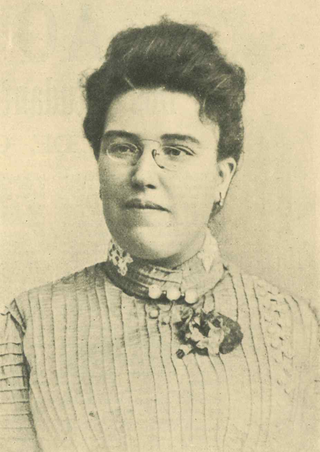 4
Ana de Castro Osório was a Portuguese feminist, active in the field of children's literature and political Republicanism.
4
Ana de Castro Osório was a Portuguese feminist, active in the field of children's literature and political Republicanism.
Eusébio
 4
Eusébio da Silva Ferreira, nicknamed the "Black Panther", the "Black Pearl" or "O Rei", was a Portuguese footballer who played as a striker. He is considered one of the greatest players of all time...
4
Eusébio da Silva Ferreira, nicknamed the "Black Panther", the "Black Pearl" or "O Rei", was a Portuguese footballer who played as a striker. He is considered one of the greatest players of all time...
Gerard Majella
 4
Gerard Majella was an Italian lay brother of the Congregation of the Redeemer, better known as the Redemptorists, who is honored as a saint by the Catholic Church.
4
Gerard Majella was an Italian lay brother of the Congregation of the Redeemer, better known as the Redemptorists, who is honored as a saint by the Catholic Church.
Álvaro de Castelões
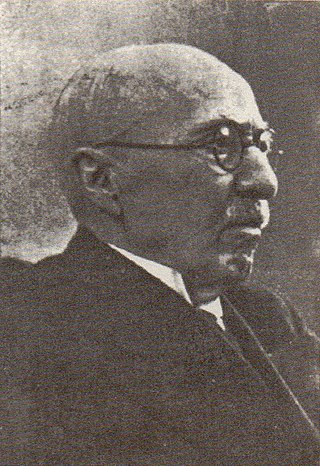 4
Álvaro de Castro Araújo Cardoso Pereira Ferraz, 3.º Visconde de Castelões, mais conhecido nos círculos literários por Álvaro de Castelões, foi um poeta, engenheiro, deputado e colonizador português....
4
Álvaro de Castro Araújo Cardoso Pereira Ferraz, 3.º Visconde de Castelões, mais conhecido nos círculos literários por Álvaro de Castelões, foi um poeta, engenheiro, deputado e colonizador português....
Sancho II of Portugal
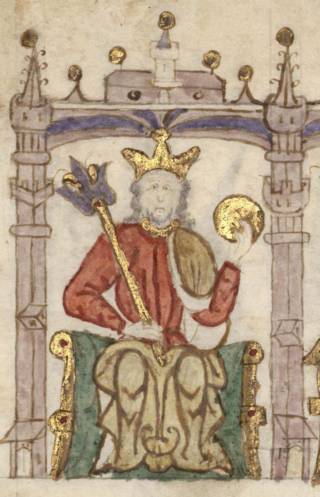 4
Sancho II, nicknamed the Cowled or the Capuched, alternatively, the Pious, was King of Portugal from 1223 to 1248. He was succeeded on the Portuguese throne by his brother, King Afonso III, in 1248.
4
Sancho II, nicknamed the Cowled or the Capuched, alternatively, the Pious, was King of Portugal from 1223 to 1248. He was succeeded on the Portuguese throne by his brother, King Afonso III, in 1248.
Eugénio de Andrade
 4
Eugénio de Andrade was the pseudonym of GOSE, GCM José Fontinhas, was a Portuguese poet. He is revered as one of the leading names in contemporary Portuguese poetry. He won the Camões Prize in 2001.
4
Eugénio de Andrade was the pseudonym of GOSE, GCM José Fontinhas, was a Portuguese poet. He is revered as one of the leading names in contemporary Portuguese poetry. He won the Camões Prize in 2001.
Jorge de Sena
 4
Jorge Cândido Alves Rodrigues Telles Grilo Raposo de Abreu de Sena was a Portuguese-born poet, critic, essayist, novelist, dramatist, translator and university professor who spent the latter portion...
4
Jorge Cândido Alves Rodrigues Telles Grilo Raposo de Abreu de Sena was a Portuguese-born poet, critic, essayist, novelist, dramatist, translator and university professor who spent the latter portion...
Carlos Paredes
 4
Carlos Paredes was a virtuoso Portuguese guitar player and composer. He is regarded as one of the greatest players of Portuguese guitar of all-time.
4
Carlos Paredes was a virtuoso Portuguese guitar player and composer. He is regarded as one of the greatest players of Portuguese guitar of all-time.
Thérèse of Lisieux
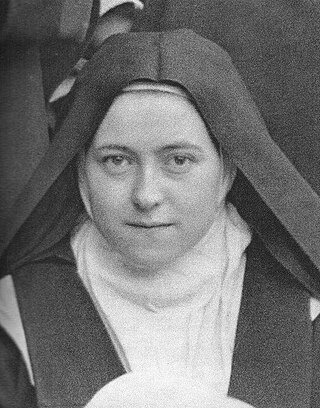 4
Therese of Lisieux, also known as Saint Therese of the Child Jesus and the Holy Face, was a French Discalced Carmelite who is widely venerated in modern times. She is popularly known in English as...
4
Therese of Lisieux, also known as Saint Therese of the Child Jesus and the Holy Face, was a French Discalced Carmelite who is widely venerated in modern times. She is popularly known in English as...
Vergílio Ferreira
 4
Vergílio António Ferreira, JOSE was a Portuguese writer, essayist, professor and a key figure in Portuguese-language literature. His prolific literary output, comprising works of fiction,...
4
Vergílio António Ferreira, JOSE was a Portuguese writer, essayist, professor and a key figure in Portuguese-language literature. His prolific literary output, comprising works of fiction,...
Azedo Gneco
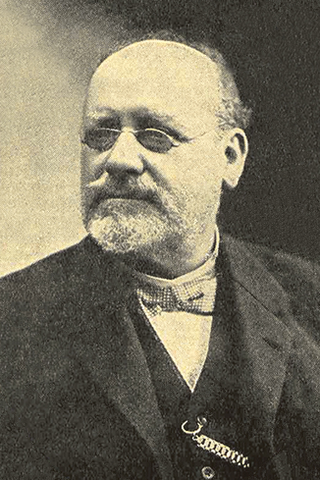 3
Eudóxio César Azedo Gneco, better known as Azedo Gneco, was an Italian-Portuguese engraver, medalist, apprentice sculptor and political activist. An orator and journalist, he was one of the founders...
3
Eudóxio César Azedo Gneco, better known as Azedo Gneco, was an Italian-Portuguese engraver, medalist, apprentice sculptor and political activist. An orator and journalist, he was one of the founders...
António Pedro
 3
António Pedro da Costa was a Portuguese painter, potter, journalist and writer.
3
António Pedro da Costa was a Portuguese painter, potter, journalist and writer.
Saint Nicholas
 3
Saint Nicholas of Myra, also known as Nicholas of Bari, was an early Christian bishop of Greek descent from the maritime city of Patara in Anatolia during the time of the Roman Empire. Because of the...
3
Saint Nicholas of Myra, also known as Nicholas of Bari, was an early Christian bishop of Greek descent from the maritime city of Patara in Anatolia during the time of the Roman Empire. Because of the...
António Augusto de Aguiar
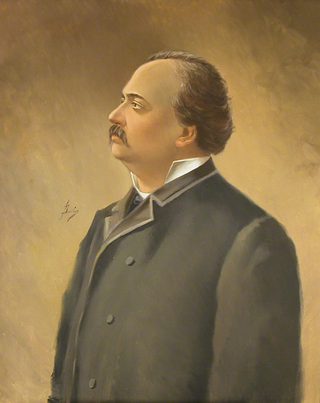 3
António Augusto de Aguiar foi professor, político, cientista e grão-mestre da Maçonaria portuguesa.
3
António Augusto de Aguiar foi professor, político, cientista e grão-mestre da Maçonaria portuguesa.
Francisco de Castro Matoso Corte-Real
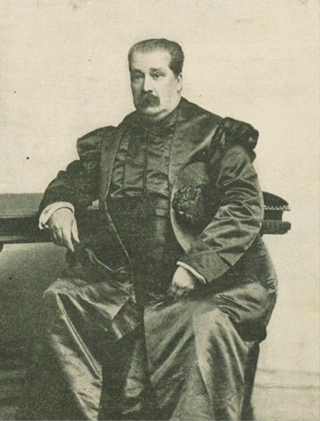 3
Francisco de Castro Matoso da Silva Corte-Real ComNSC foi um magistrado e político português.
3
Francisco de Castro Matoso da Silva Corte-Real ComNSC foi um magistrado e político português.
Martha
 3
Martha is a biblical figure described in the Gospels of Luke and John. Together with her siblings Lazarus and Mary of Bethany, she is described as living in the village of Bethany near Jerusalem. She...
3
Martha is a biblical figure described in the Gospels of Luke and John. Together with her siblings Lazarus and Mary of Bethany, she is described as living in the village of Bethany near Jerusalem. She...
Victor of Braga
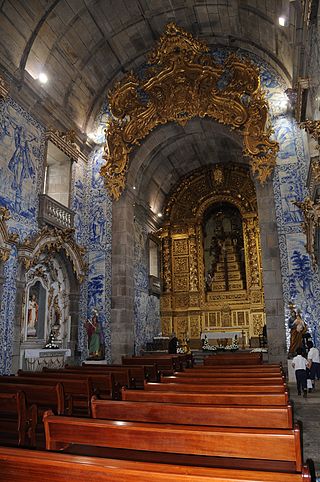 3
Victor of Braga, also known as Saint Victor, was a Portuguese Christian martyr.
His feast day is 12 April.
3
Victor of Braga, also known as Saint Victor, was a Portuguese Christian martyr.
His feast day is 12 April.
Francisco Augusto de Oliveira Feijão
 3
Francisco Augusto de Oliveira Feijão, conhecido também por O Mestre Feijão, foi um prestigiado médico, higienista e intelectual, reputado como excelente cirurgião e obstetra. Professor de cirurgia na...
3
Francisco Augusto de Oliveira Feijão, conhecido também por O Mestre Feijão, foi um prestigiado médico, higienista e intelectual, reputado como excelente cirurgião e obstetra. Professor de cirurgia na...
Francisco Gentil
 3
Francisco Soares Branco Gentil GCSE foi um médico-cirurgião e professor português.
3
Francisco Soares Branco Gentil GCSE foi um médico-cirurgião e professor português.
Dom Pedro
 3
Dom Pedro is the traditional Portuguese appellation of several kings of Portugal:Peter I of Portugal
Peter II of Portugal
Peter III of Portugal
Pedro IV of Portugal
Pedro V of Portugal
3
Dom Pedro is the traditional Portuguese appellation of several kings of Portugal:Peter I of Portugal
Peter II of Portugal
Peter III of Portugal
Pedro IV of Portugal
Pedro V of Portugal
Joanna, Princess of Portugal
 3
Joanna of Portugal, OP was a Portuguese regent princess of the House of Aviz, daughter of King Afonso V of Portugal and his first wife Isabel of Coimbra. She served as regent during the absence of...
3
Joanna of Portugal, OP was a Portuguese regent princess of the House of Aviz, daughter of King Afonso V of Portugal and his first wife Isabel of Coimbra. She served as regent during the absence of...
Agostinho Neto
 3
António Agostinho Neto was an Angolan communist politician and poet. He served as the first president of Angola from 1975 to 1979, having led the Popular Movement for the Liberation of Angola (MPLA)...
3
António Agostinho Neto was an Angolan communist politician and poet. He served as the first president of Angola from 1975 to 1979, having led the Popular Movement for the Liberation of Angola (MPLA)...
Martins Sarmento
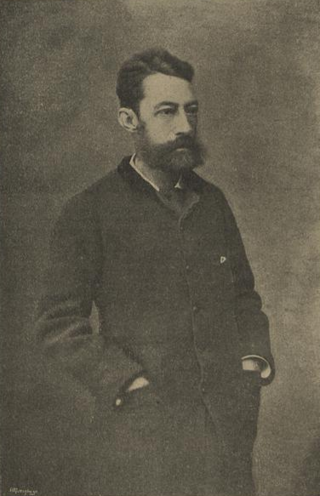 3
Francisco Martins de Gouveia de Morais Sarmento foi um notável arqueólogo e escritor português.
3
Francisco Martins de Gouveia de Morais Sarmento foi um notável arqueólogo e escritor português.
Francisco da Silveira, 1st Count of Amarante
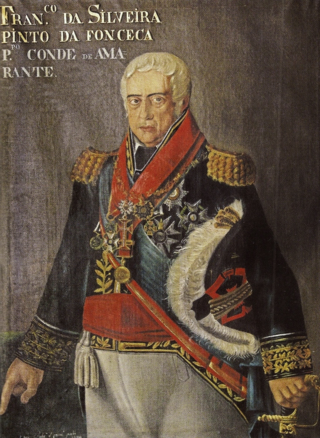 3
D. Francisco da Silveira Pinto da Fonseca Teixeira, 1st Count of Amarante was a Portuguese army officer who fought in the War of the Oranges and other campaigns of the Peninsular War.
3
D. Francisco da Silveira Pinto da Fonseca Teixeira, 1st Count of Amarante was a Portuguese army officer who fought in the War of the Oranges and other campaigns of the Peninsular War.
Tomás da Fonseca
 3
José Tomás da Fonseca foi um agricultor, ex-seminarista, poeta, escritor, historiógrafo, jornalista, professor, político e militante republicano de cariz ateu e anticlerical português. Pertenceu ao...
3
José Tomás da Fonseca foi um agricultor, ex-seminarista, poeta, escritor, historiógrafo, jornalista, professor, político e militante republicano de cariz ateu e anticlerical português. Pertenceu ao...
Luís I of Portugal
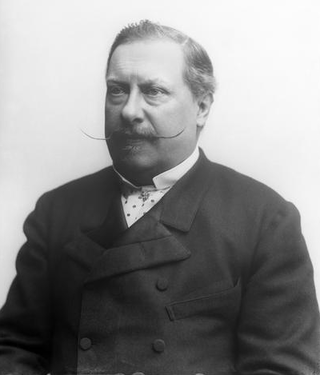 3
Dom Luís I, known as the Popular was King of Portugal from 1861 to 1889. The second son of Queen Maria II and her consort, King Ferdinand, he acceded to the throne upon the death of his elder brother...
3
Dom Luís I, known as the Popular was King of Portugal from 1861 to 1889. The second son of Queen Maria II and her consort, King Ferdinand, he acceded to the throne upon the death of his elder brother...
João dos Santos
 3
João dos Santos was a Portuguese Dominican missionary in India and Africa.
3
João dos Santos was a Portuguese Dominican missionary in India and Africa.
António Granjo
Manuel Fernandes Tomás
 3
Manuel Fernandes Tomás, por muitos considerado a figura mais importante do primeiro período liberal, foi um magistrado e político vintista que se destacou na organização dos primeiros movimentos...
3
Manuel Fernandes Tomás, por muitos considerado a figura mais importante do primeiro período liberal, foi um magistrado e político vintista que se destacou na organização dos primeiros movimentos...
Albert I, Prince of Monaco
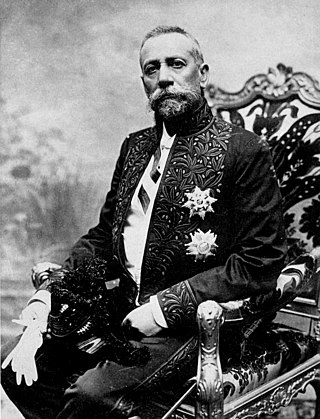 3
Albert I was Prince of Monaco from 10 September 1889 until his death in 1922. He devoted much of his life to oceanography, exploration and science. Alongside his expeditions, Albert I made reforms on...
3
Albert I was Prince of Monaco from 10 September 1889 until his death in 1922. He devoted much of his life to oceanography, exploration and science. Alongside his expeditions, Albert I made reforms on...
Joaquim António Velez Barreiros
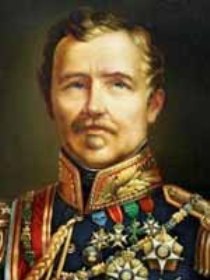 3
Joaquim António Velez Barreiros, foi um notável oficial do exército e político português.
3
Joaquim António Velez Barreiros, foi um notável oficial do exército e político português.
Francisco de Sá de Miranda
 3
Francisco de Sá de Miranda was a Portuguese poet of the Renaissance.
3
Francisco de Sá de Miranda was a Portuguese poet of the Renaissance.
Gualdim Pais
 3
Dom Gualdim Pais, a Portuguese crusader, Knight Templar in the service of Afonso Henriques of Portugal. He was the founder of the city of Tomar.
3
Dom Gualdim Pais, a Portuguese crusader, Knight Templar in the service of Afonso Henriques of Portugal. He was the founder of the city of Tomar.
Agostinho da Silva
 3
George Agostinho Baptista da Silva, GCSE was a Portuguese philosopher, essayist, and writer. His thought combines elements of pantheism and millenarism, an ethic of renunciation, and a belief in...
3
George Agostinho Baptista da Silva, GCSE was a Portuguese philosopher, essayist, and writer. His thought combines elements of pantheism and millenarism, an ethic of renunciation, and a belief in...
José Maria dos Santos
 3
José Maria dos Santos foi um veterinário, empresário agrícola e político português.
3
José Maria dos Santos foi um veterinário, empresário agrícola e político português.
José Alves Correia da Silva
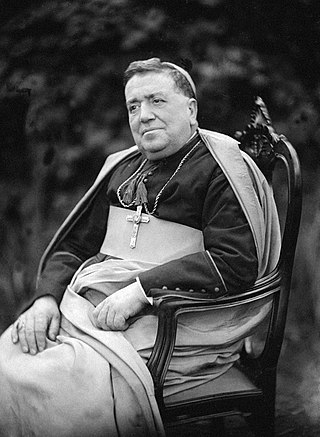 3
Dom José Alves Correia da Silva was a Portuguese priest. He was Bishop of Leiria from 1920 until his death in 1957.
3
Dom José Alves Correia da Silva was a Portuguese priest. He was Bishop of Leiria from 1920 until his death in 1957.
Francisco and Jacinta Marto
 3
Francisco de Jesus Marto and Jacinta de Jesus Marto were siblings from Aljustrel, a small hamlet near Fátima, Portugal, who, with their cousin Lúcia dos Santos (1907–2005), reportedly witnessed three...
3
Francisco de Jesus Marto and Jacinta de Jesus Marto were siblings from Aljustrel, a small hamlet near Fátima, Portugal, who, with their cousin Lúcia dos Santos (1907–2005), reportedly witnessed three...
Saint Cajetan
 3
Gaetano dei Conti di Thiene, known as Saint Cajetan, was an Italian Catholic priest and religious reformer, co-founder of the Theatines. He is recognised as a saint in the Catholic Church, and his...
3
Gaetano dei Conti di Thiene, known as Saint Cajetan, was an Italian Catholic priest and religious reformer, co-founder of the Theatines. He is recognised as a saint in the Catholic Church, and his...
Pedro Homem de Melo
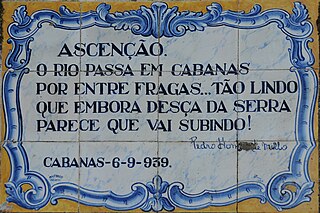 3
Pedro da Cunha Pimentel Homem de Mello foi um poeta, professor e folclorista português.
3
Pedro da Cunha Pimentel Homem de Mello foi um poeta, professor e folclorista português.
Duke of Loulé
 3
Duke of Loulé is a Portuguese title of nobility created by a royal decree of King Luis I of Portugal, dated from October 3, 1862, to his grand-uncle Nuno José Severo de Mendoça Rolim de Moura...
3
Duke of Loulé is a Portuguese title of nobility created by a royal decree of King Luis I of Portugal, dated from October 3, 1862, to his grand-uncle Nuno José Severo de Mendoça Rolim de Moura...
Sebastião de Magalhães Lima
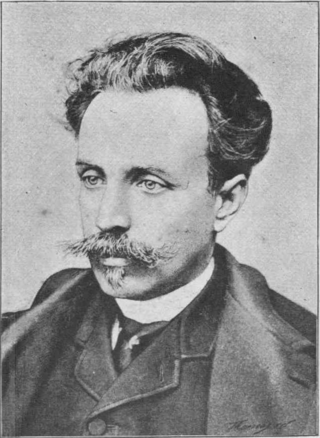 3
Sebastião de Magalhães Lima GCTE foi um advogado, jornalista, político e escritor português, fundador do jornal O Século. Defensor de republicanismo com pendor a um socialismo utópico, fez parte da...
3
Sebastião de Magalhães Lima GCTE foi um advogado, jornalista, político e escritor português, fundador do jornal O Século. Defensor de republicanismo com pendor a um socialismo utópico, fez parte da...
Ivone Silva
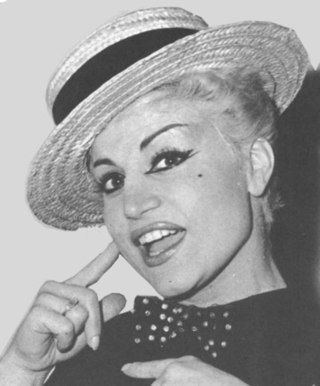 3
Maria Ivone da Silva Nunes, mais conhecida por Ivone Silva, foi uma atriz e encenadora portuguesa. Ficou célebre pelo seu trabalho humorístico na televisão e teatro de revista.
3
Maria Ivone da Silva Nunes, mais conhecida por Ivone Silva, foi uma atriz e encenadora portuguesa. Ficou célebre pelo seu trabalho humorístico na televisão e teatro de revista.
Mário Cesariny de Vasconcelos
 3
Mário Cesariny de Vasconcelos or Mário Cesariny was a Portuguese surrealist poet and painter. He published several major works of poetry during a career spanning 50 years. Cesariny was also a...
3
Mário Cesariny de Vasconcelos or Mário Cesariny was a Portuguese surrealist poet and painter. He published several major works of poetry during a career spanning 50 years. Cesariny was also a...
John VI of Portugal
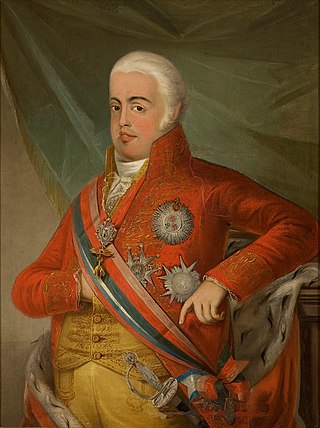 3
Dom John VI, nicknamed "the Clement", was King of the United Kingdom of Portugal, Brazil and the Algarves from 1816 to 1825. Although the United Kingdom of Portugal ceased to exist de facto beginning...
3
Dom John VI, nicknamed "the Clement", was King of the United Kingdom of Portugal, Brazil and the Algarves from 1816 to 1825. Although the United Kingdom of Portugal ceased to exist de facto beginning...
Francisco Pinto Bessa
 3
Francisco Pinto Bessa foi um político português, que ocupou o cargo de presidente da Câmara do Porto entre 1867 e 1878.
3
Francisco Pinto Bessa foi um político português, que ocupou o cargo de presidente da Câmara do Porto entre 1867 e 1878.
Félix de Avelar Brotero
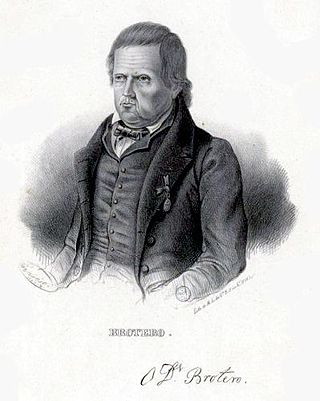 3
Félix de Avelar Brotero was a Portuguese botanist and professor. He fled to France in 1788 to escape persecution by the Portuguese Inquisition, and there published his Compendio de Botanica in order...
3
Félix de Avelar Brotero was a Portuguese botanist and professor. He fled to France in 1788 to escape persecution by the Portuguese Inquisition, and there published his Compendio de Botanica in order...
Duke of Braganza
 3
The title Duke of Braganza in the House of Braganza is one of the most important titles in the peerage of Portugal. Starting in 1640, when the House of Braganza acceded to the throne of Portugal, the...
3
The title Duke of Braganza in the House of Braganza is one of the most important titles in the peerage of Portugal. Starting in 1640, when the House of Braganza acceded to the throne of Portugal, the...
José Agostinho
 3
José Agostinho, mais conhecido por tenente-coronel José Agostinho, foi um militar de carreira que se distinguiu como meteorologista e naturalista de renome internacional. Publicou algumas centenas de...
3
José Agostinho, mais conhecido por tenente-coronel José Agostinho, foi um militar de carreira que se distinguiu como meteorologista e naturalista de renome internacional. Publicou algumas centenas de...
Damião de Góis
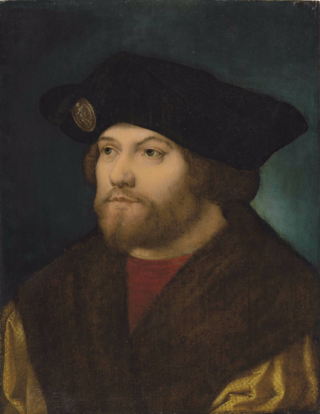 3
Damião de Góis, born in Alenquer, Portugal, was an important Portuguese humanist philosopher. He was a friend and student of Erasmus. He was appointed secretary to the Portuguese factory in Antwerp...
3
Damião de Góis, born in Alenquer, Portugal, was an important Portuguese humanist philosopher. He was a friend and student of Erasmus. He was appointed secretary to the Portuguese factory in Antwerp...
Manuel Parada
 3
Manuel Parada de la Puente fue un músico cinematográfico y teatral español.
3
Manuel Parada de la Puente fue un músico cinematográfico y teatral español.
António de Andrade
 3
António de Andrade was a Jesuit priest and explorer from Portugal. He entered the Society of Jesus in 1596. From 1600 until his death in 1634 he was engaged in missionary activity in India. Andrade...
3
António de Andrade was a Jesuit priest and explorer from Portugal. He entered the Society of Jesus in 1596. From 1600 until his death in 1634 he was engaged in missionary activity in India. Andrade...
Pêro Vaz de Caminha
 3
Pêro or Pero Vaz de Caminha was a Portuguese knight that accompanied Pedro Álvares Cabral to India in 1500 as a secretary to the royal factory. Caminha wrote the detailed official report of the April...
3
Pêro or Pero Vaz de Caminha was a Portuguese knight that accompanied Pedro Álvares Cabral to India in 1500 as a secretary to the royal factory. Caminha wrote the detailed official report of the April...
Manuel Ferreira (writer)
 3
Manuel Ferreira was a Portuguese writer that became known for his work centered around African culture and literature.
3
Manuel Ferreira was a Portuguese writer that became known for his work centered around African culture and literature.
Manuel Mendes
 3
Manuel Mendes was a Portuguese composer and teacher of the Renaissance. While his music remains obscure, he was important as the teacher of several of the composers of the golden age of Portuguese...
3
Manuel Mendes was a Portuguese composer and teacher of the Renaissance. While his music remains obscure, he was important as the teacher of several of the composers of the golden age of Portuguese...
Eugénio de Castro
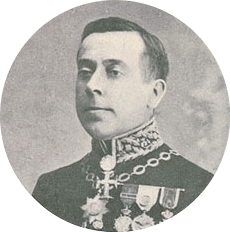 3
Eugénio de Castro e Almeida was a Portuguese writer and a poet. He was a professor at the Faculty of Letters at the University of Coimbra and attended Escola Normal Superior in the same university.
3
Eugénio de Castro e Almeida was a Portuguese writer and a poet. He was a professor at the Faculty of Letters at the University of Coimbra and attended Escola Normal Superior in the same university.
John V of Portugal
 3
Dom John V, known as the Magnanimous and the Portuguese Sun King, was King of Portugal from 9 December 1706 until his death in 1750. His reign saw the rise of Portugal and its monarchy to new levels...
3
Dom John V, known as the Magnanimous and the Portuguese Sun King, was King of Portugal from 9 December 1706 until his death in 1750. His reign saw the rise of Portugal and its monarchy to new levels...
Augusto Hilário
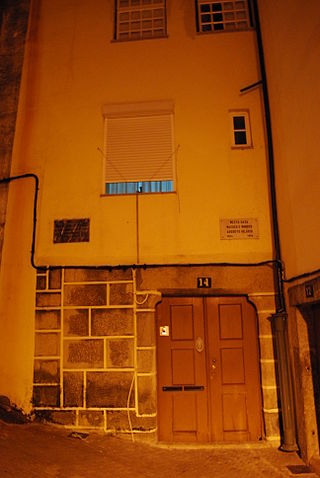 3
Augusto Hilário da Costa Alves foi um intérprete português da canção de Coimbra.
3
Augusto Hilário da Costa Alves foi um intérprete português da canção de Coimbra.
Henrique Mitchell de Paiva Cabral Couceiro
 3
Henrique Mitchell de Paiva Cabral Couceiro was a Portuguese soldier, colonial governor, monarchist politician and counter-revolutionary; he was notable for his role during the colonial occupation of...
3
Henrique Mitchell de Paiva Cabral Couceiro was a Portuguese soldier, colonial governor, monarchist politician and counter-revolutionary; he was notable for his role during the colonial occupation of...
Saint George
 3
Saint George, also George of Lydda, was an early Christian martyr who is venerated as a saint in Christianity. According to tradition, he was a soldier in the Roman army. Of Cappadocian Greek origin,...
3
Saint George, also George of Lydda, was an early Christian martyr who is venerated as a saint in Christianity. According to tradition, he was a soldier in the Roman army. Of Cappadocian Greek origin,...
António José Enes
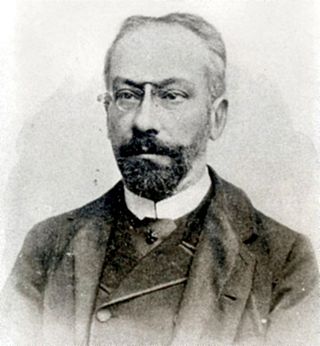 3
António José Enes, commonly known as António Enes, was a Portuguese politician and writer.
3
António José Enes, commonly known as António Enes, was a Portuguese politician and writer.
Alfredo Da Silva
 3
Alfredo Da Silva was a painter, graphic artist, and photographer, known for his abstract expressionism. He came to international prominence in 1959 and remained so until his death in 2020.
3
Alfredo Da Silva was a painter, graphic artist, and photographer, known for his abstract expressionism. He came to international prominence in 1959 and remained so until his death in 2020.
Carlos de Oliveira
 3
Carlos de Oliveira, GOSE, was a Portuguese poet and novelist.
3
Carlos de Oliveira, GOSE, was a Portuguese poet and novelist.
Adelaide Cabete
 3
Adelaide Cabete, was one of the main Portuguese feminists of the 20th century. A staunch Republican, she was an obstetrician, gynecologist, teacher, Freemason, author, philanthropist, pacifist,...
3
Adelaide Cabete, was one of the main Portuguese feminists of the 20th century. A staunch Republican, she was an obstetrician, gynecologist, teacher, Freemason, author, philanthropist, pacifist,...
Rui Grácio
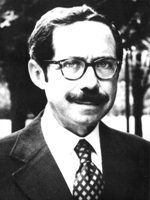 3
Rui dos Santos Grácio GOL • GOIP foi um pedagogista, investigador das ciências da educação, que se notabilizou pelos seus estudos e investigações no domínio educacional, em particular nos campos da...
3
Rui dos Santos Grácio GOL • GOIP foi um pedagogista, investigador das ciências da educação, que se notabilizou pelos seus estudos e investigações no domínio educacional, em particular nos campos da...
António das Chagas
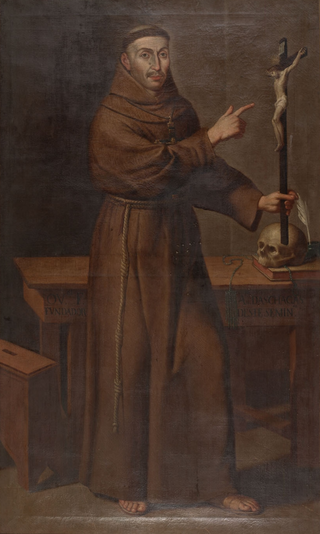 3
António das Chagas, was a Portuguese Franciscan friar and ascetical writer.
3
António das Chagas, was a Portuguese Franciscan friar and ascetical writer.
Sophia de Mello Breyner Andresen
 3
Sophia de Mello Breyner Andresen was a Portuguese poet and writer. Her remains have been entombed in the National Pantheon since 2014.
3
Sophia de Mello Breyner Andresen was a Portuguese poet and writer. Her remains have been entombed in the National Pantheon since 2014.
Ruben A.
 3
Ruben Alfredo Andresen Leitão GOSE • ComIH foi um escritor, romancista, ensaísta, historiador, crítico literário, e autor de textos autobiográficos, português, com o pseudónimo Ruben A..
3
Ruben Alfredo Andresen Leitão GOSE • ComIH foi um escritor, romancista, ensaísta, historiador, crítico literário, e autor de textos autobiográficos, português, com o pseudónimo Ruben A..
João de Lemos
 3
João de Lemos Seixas Castelo Branco (1819–1890) was a Portuguese journalist, poet and dramatist.
3
João de Lemos Seixas Castelo Branco (1819–1890) was a Portuguese journalist, poet and dramatist.
Manuel da Maia
 3
Manuel da Maia was a Portuguese architect, engineer, and archivist. Maia is primarily remembered for his leadership in the reconstruction efforts following the 1755 Lisbon earthquake, alongside...
3
Manuel da Maia was a Portuguese architect, engineer, and archivist. Maia is primarily remembered for his leadership in the reconstruction efforts following the 1755 Lisbon earthquake, alongside...
Arlindo Vicente
 3
Arlindo Augusto Pires Vicente foi um advogado e pintor português. Personalidade multifacetada, advogado, pintor autodidata, militante antifascista e declarado opositor ao Regime do Estado Novo,...
3
Arlindo Augusto Pires Vicente foi um advogado e pintor português. Personalidade multifacetada, advogado, pintor autodidata, militante antifascista e declarado opositor ao Regime do Estado Novo,...
Carolina Beatriz Ângelo
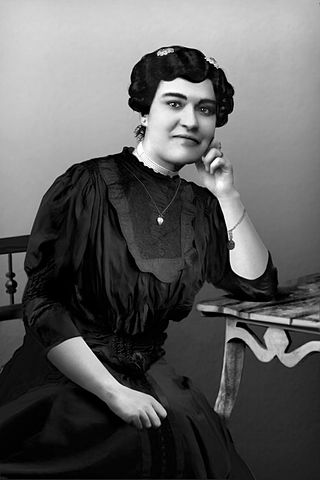 3
Carolina Beatriz Ângelo was a Portuguese physician and the first woman to vote in Portugal.
3
Carolina Beatriz Ângelo was a Portuguese physician and the first woman to vote in Portugal.
Serrão Martins
 3
António Manuel Serrão Martins, foi um político português, o primeiro autarca de Mértola a ser eleito após a Revolução dos Cravos.
3
António Manuel Serrão Martins, foi um político português, o primeiro autarca de Mértola a ser eleito após a Revolução dos Cravos.
Laura Alves
 3
Laura Alves was a Portuguese actress on stage, film and radio.
3
Laura Alves was a Portuguese actress on stage, film and radio.
Túlio Espanca
 3
Túlio Alberto da Rocha Espanca OSE foi um historiador de arte português.
3
Túlio Alberto da Rocha Espanca OSE foi um historiador de arte português.
Diogo Dias Melgás
 3
Diogo Dias Melgás was a Portuguese composer of late-Renaissance sacred polyphony.
3
Diogo Dias Melgás was a Portuguese composer of late-Renaissance sacred polyphony.
Mário Beirão
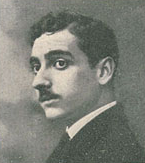 3
Mário Pires Gomes Beirão foi um poeta português.
3
Mário Pires Gomes Beirão foi um poeta português.
António Ramalho Eanes
 3
António dos Santos Ramalho Eanes is a Portuguese general and politician who was the 16th president of Portugal from 1976 to 1986.
3
António dos Santos Ramalho Eanes is a Portuguese general and politician who was the 16th president of Portugal from 1976 to 1986.
Sérgio Vieira de Mello
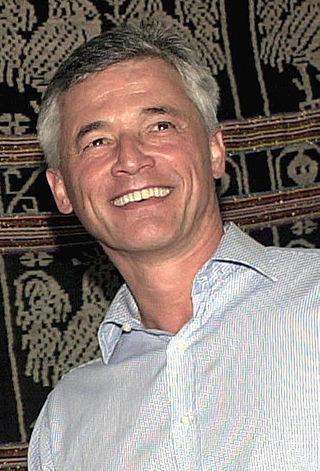 3
Sérgio Vieira de Mello was a Brazilian United Nations diplomat who worked on several UN humanitarian and political programs for over 34 years. The Government of Brazil posthumously awarded the Sergio...
3
Sérgio Vieira de Mello was a Brazilian United Nations diplomat who worked on several UN humanitarian and political programs for over 34 years. The Government of Brazil posthumously awarded the Sergio...
Armando José Fernandes
 3
Armando José Fernandes was a neoclassical Portuguese composer; with Jorge Croner de Vasconcelos, Fernando Lopes-Graça, and Pedro do Prado, one of the "group of four" who dominated mid-20th-century...
3
Armando José Fernandes was a neoclassical Portuguese composer; with Jorge Croner de Vasconcelos, Fernando Lopes-Graça, and Pedro do Prado, one of the "group of four" who dominated mid-20th-century...
Luís de Freitas Branco
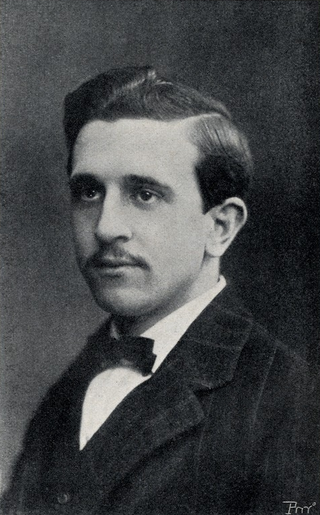 3
Luís Maria da Costa de Freitas Branco was a Portuguese composer, musicologist, and professor of music who played a pre-eminent part in the development of Portuguese music in the first half of the...
3
Luís Maria da Costa de Freitas Branco was a Portuguese composer, musicologist, and professor of music who played a pre-eminent part in the development of Portuguese music in the first half of the...
Our Lady of the Good Event
 3
Our Lady of the Good Event is a Catholic Marian title in Portuguese and Spanish-speaking countries. It is often mistranslated as "Our Lady of Good Success" due to the superficial similarity between...
3
Our Lady of the Good Event is a Catholic Marian title in Portuguese and Spanish-speaking countries. It is often mistranslated as "Our Lady of Good Success" due to the superficial similarity between...
José Tomás de Sousa Martins
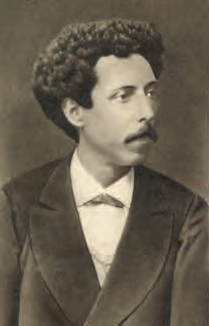 3
José Tomás de Sousa Martins was a doctor renowned for his work for the poor in Lisbon, Portugal. After his death, a secular cult arose around his personality in which he is thanked for "miraculous"...
3
José Tomás de Sousa Martins was a doctor renowned for his work for the poor in Lisbon, Portugal. After his death, a secular cult arose around his personality in which he is thanked for "miraculous"...
Cândido de Oliveira
 3
Cândido Plácido Fernandes de Oliveira was a Portuguese football player, coach, and sports journalist.
3
Cândido Plácido Fernandes de Oliveira was a Portuguese football player, coach, and sports journalist.
Alexius of Rome
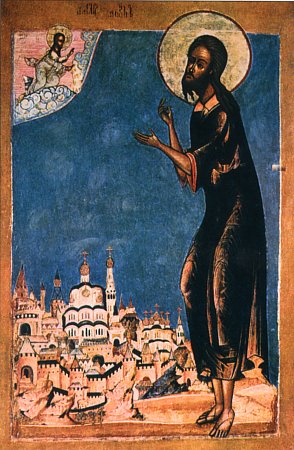 3
Saint Alexius of Rome or Alexius of Edessa, also Alexis, was a fourth-century Greek monk who lived in anonymity and is known for his dedication to Christ. Two versions of his life exist, one in...
3
Saint Alexius of Rome or Alexius of Edessa, also Alexis, was a fourth-century Greek monk who lived in anonymity and is known for his dedication to Christ. Two versions of his life exist, one in...
Amador Arrais
 3
D. Frei Amador Arrais, frade carmelita, esmoler-mor, bispo de Portalegre, foi um religioso e escritor português do século XVI.
3
D. Frei Amador Arrais, frade carmelita, esmoler-mor, bispo de Portalegre, foi um religioso e escritor português do século XVI.
António Feliciano de Castilho
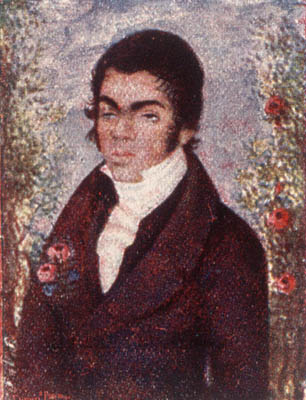 3
António Feliciano de Castilho, 1st Viscount of Castilho was a Portuguese writer.
3
António Feliciano de Castilho, 1st Viscount of Castilho was a Portuguese writer.
Eduardo Galhardo
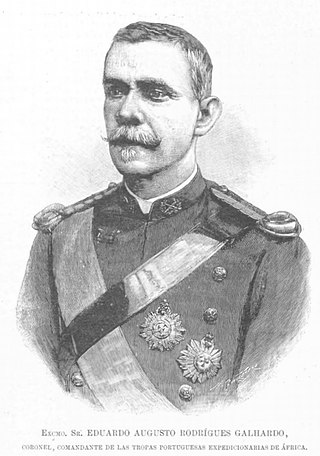 3
Eduardo Augusto Rodrigues Galhardo GOTE • MOVM • ComC • ComA • GOA • MPBS • GCIC • ComNSC • GCNSC foi um militar, político, administrador colonial e diplomata português que se notabilizou nas...
3
Eduardo Augusto Rodrigues Galhardo GOTE • MOVM • ComC • ComA • GOA • MPBS • GCIC • ComNSC • GCNSC foi um militar, político, administrador colonial e diplomata português que se notabilizou nas...
Afonso de Paiva
 3
Afonso de Paiva was a Portuguese diplomat and explorer of Ethiopia and the Barbary Coast together with Pêro da Covilhã. According to James Bruce, Afonso left Pêro da Covilhã at Aden, and proceeded to...
3
Afonso de Paiva was a Portuguese diplomat and explorer of Ethiopia and the Barbary Coast together with Pêro da Covilhã. According to James Bruce, Afonso left Pêro da Covilhã at Aden, and proceeded to...
Christopher Columbus
 3
Christopher Columbus was an Italian explorer and navigator from the Republic of Genoa who completed four Spanish-based voyages across the Atlantic Ocean sponsored by the Catholic Monarchs, opening...
3
Christopher Columbus was an Italian explorer and navigator from the Republic of Genoa who completed four Spanish-based voyages across the Atlantic Ocean sponsored by the Catholic Monarchs, opening...